Barragán
Text by Chris Stewart
PHOTOGRAPHY AND STYLING BY VICTOR BARRAGÁN
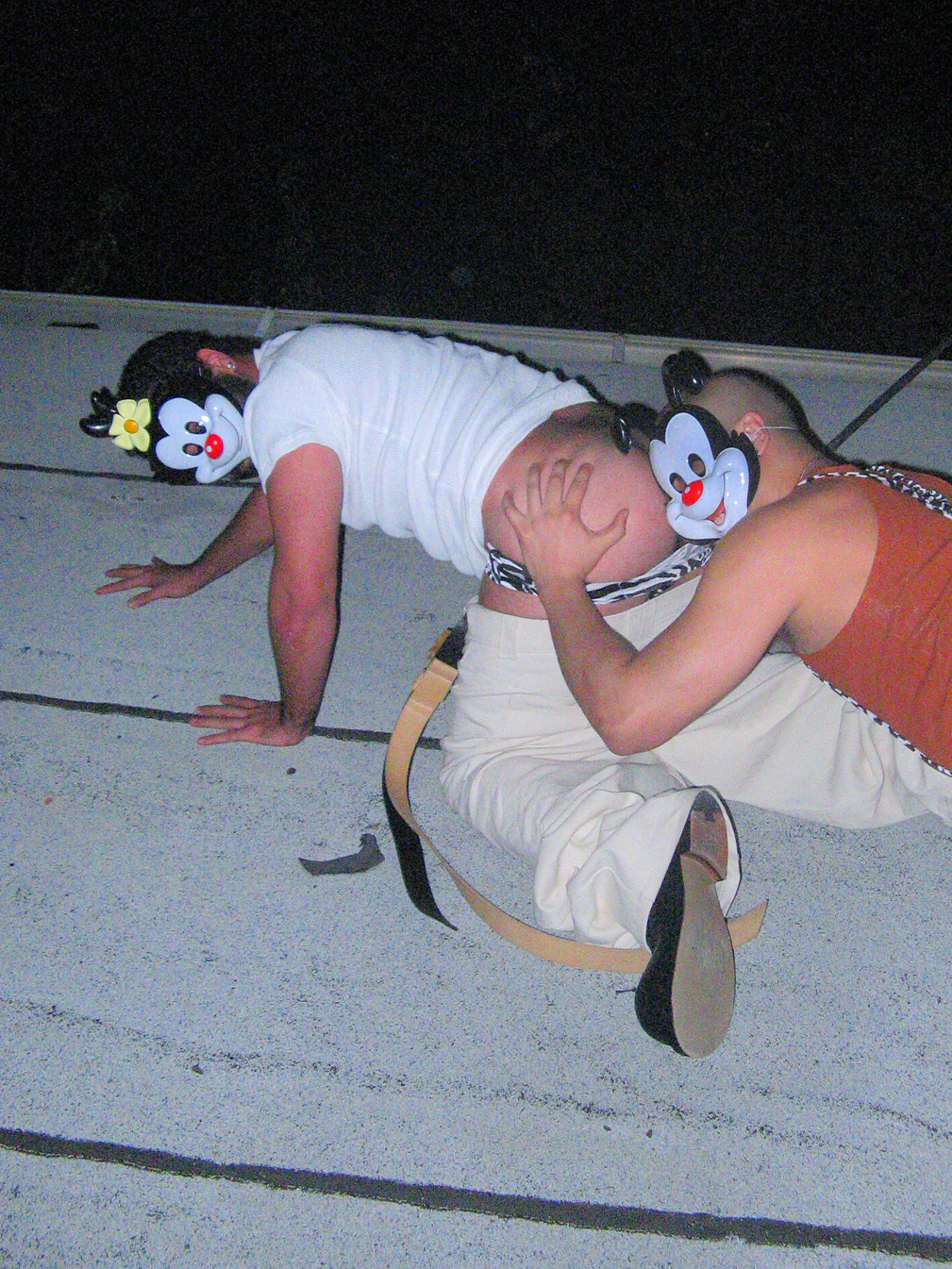
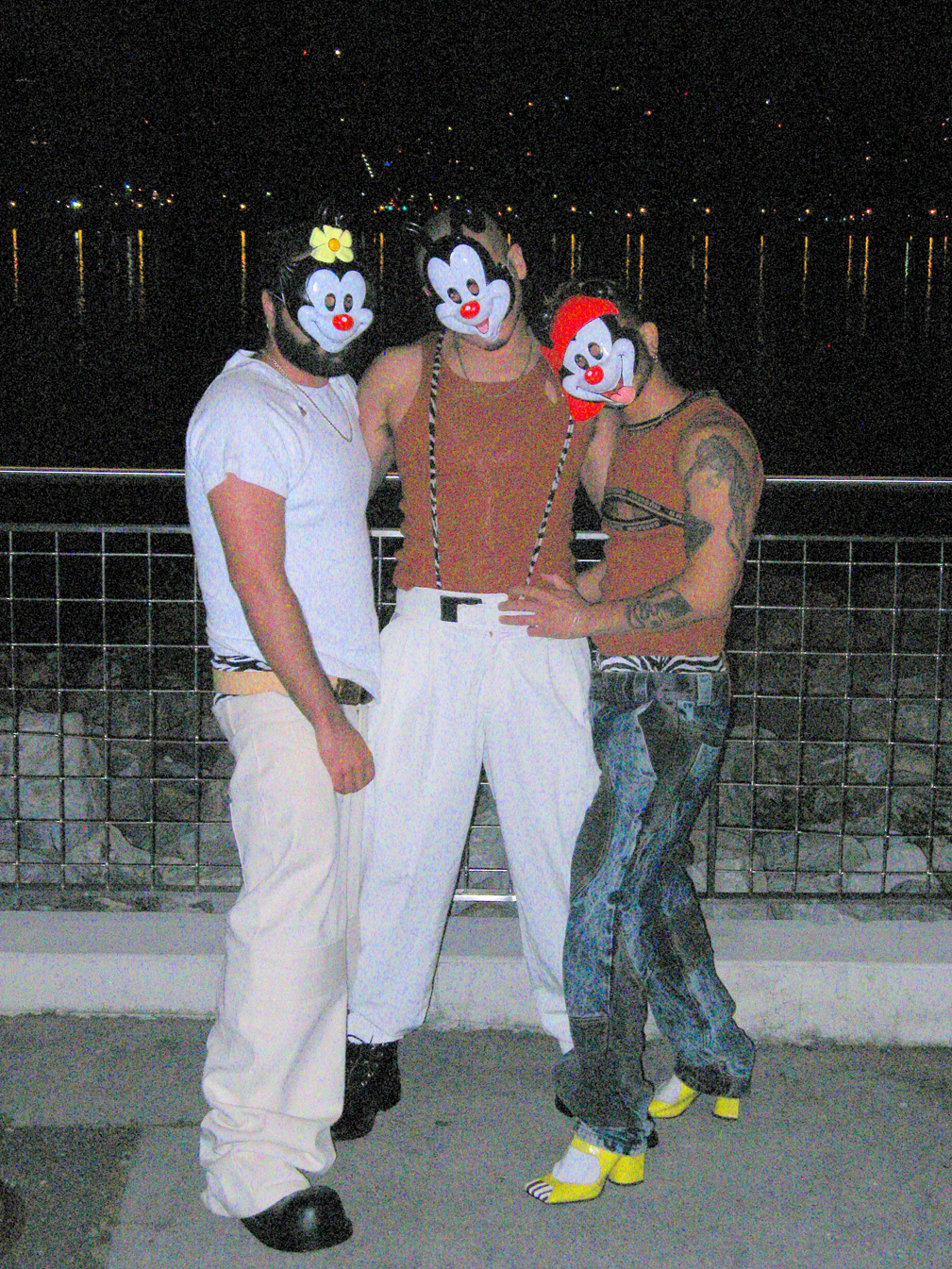
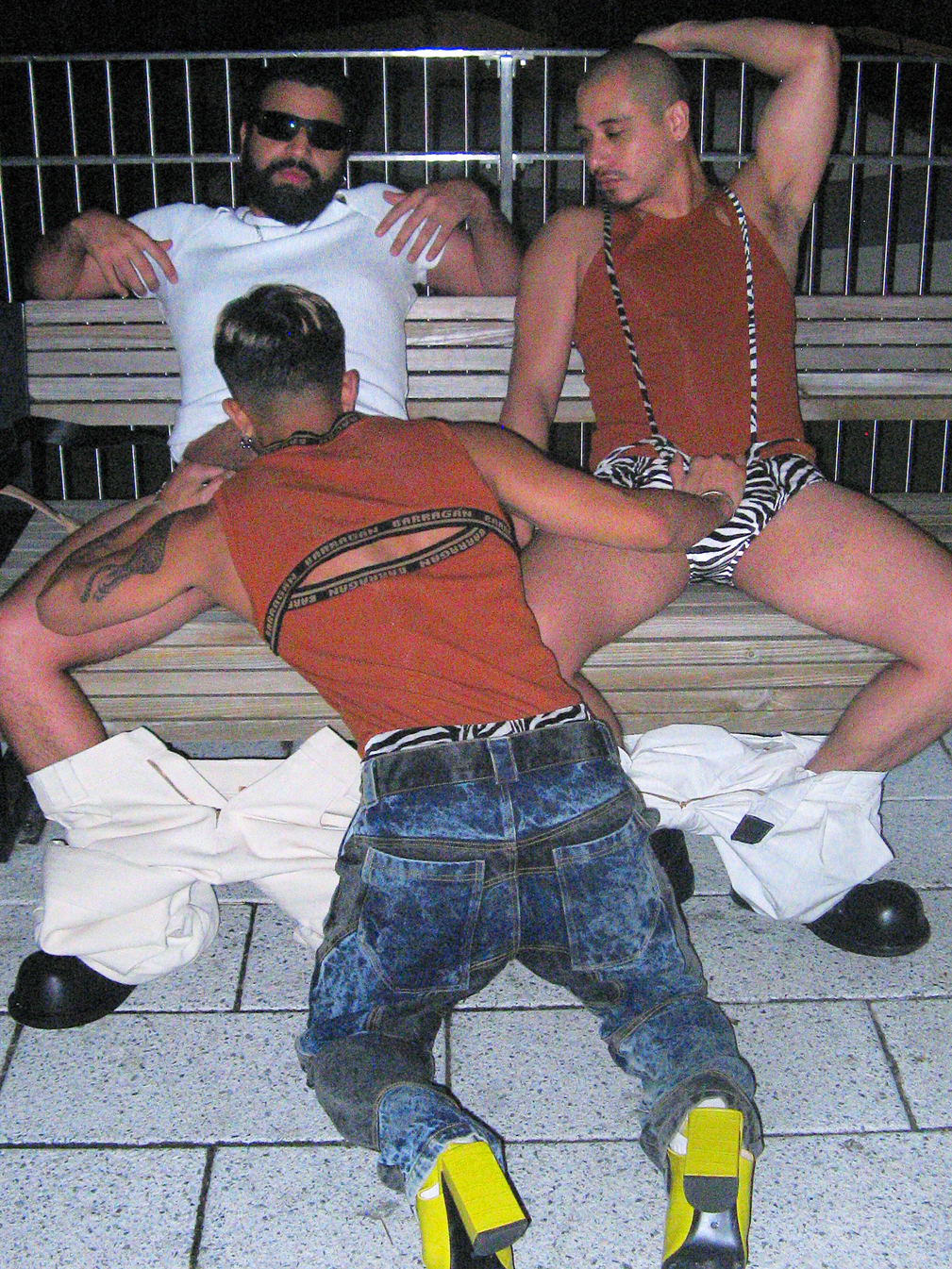
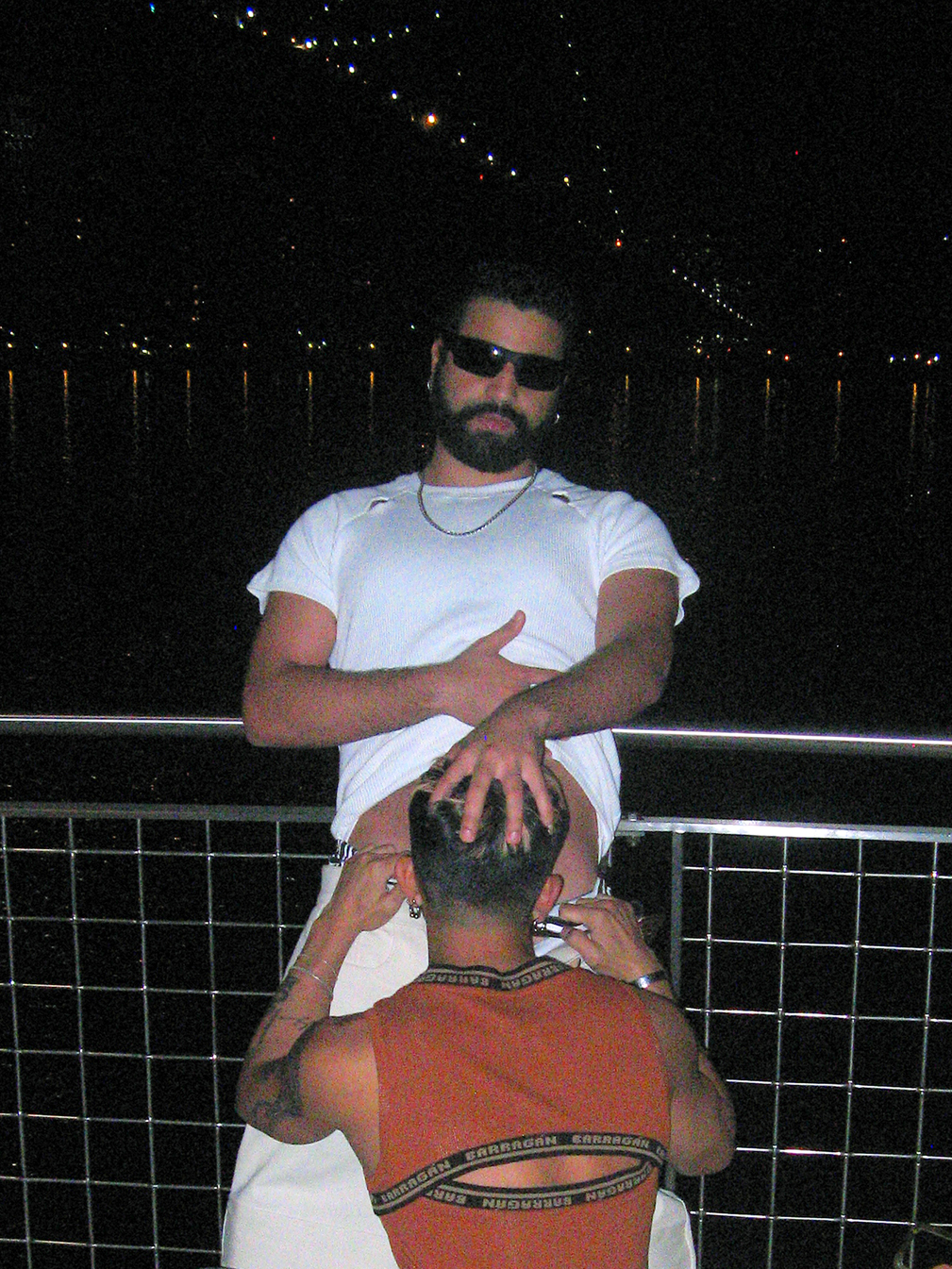
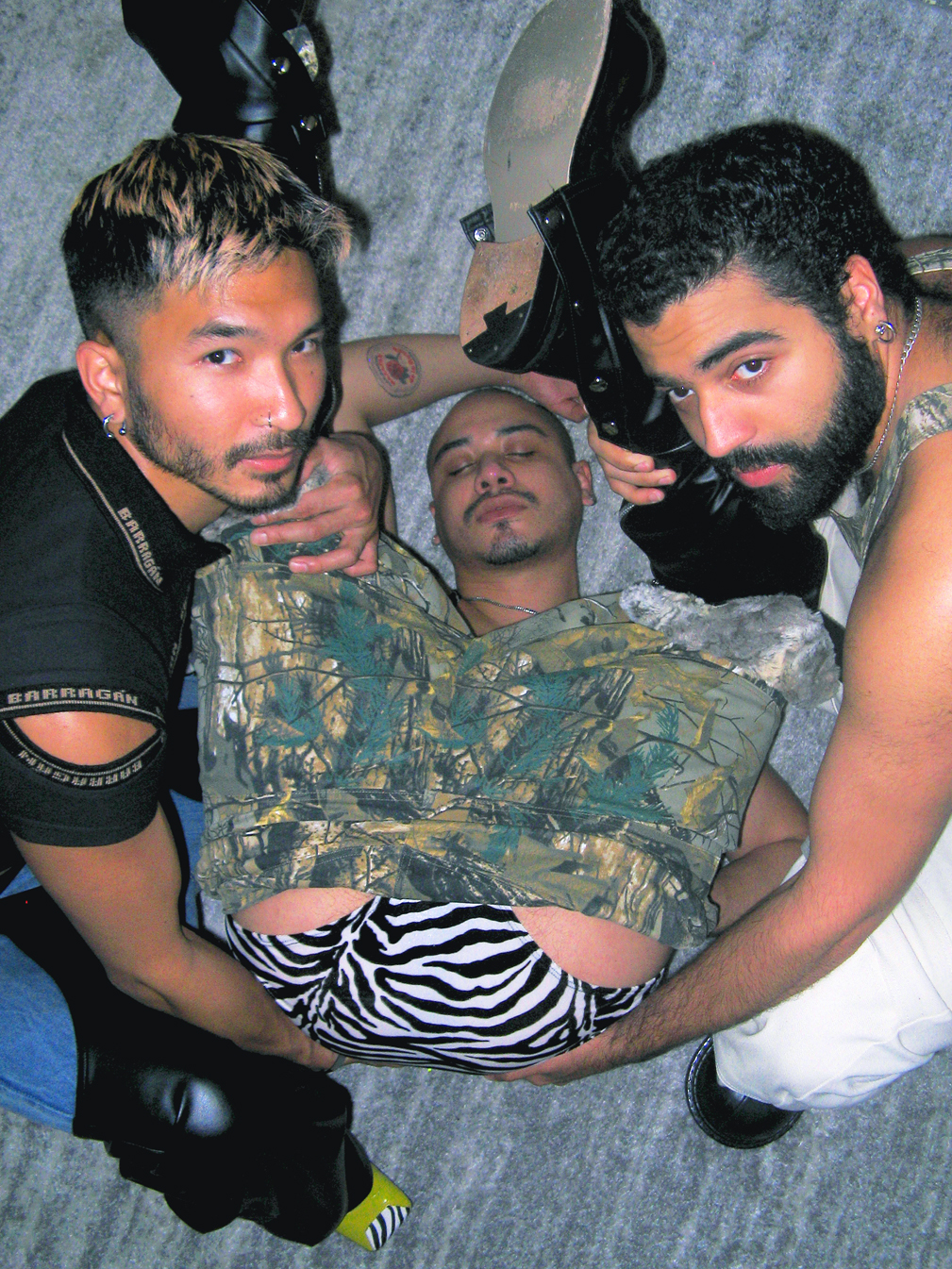
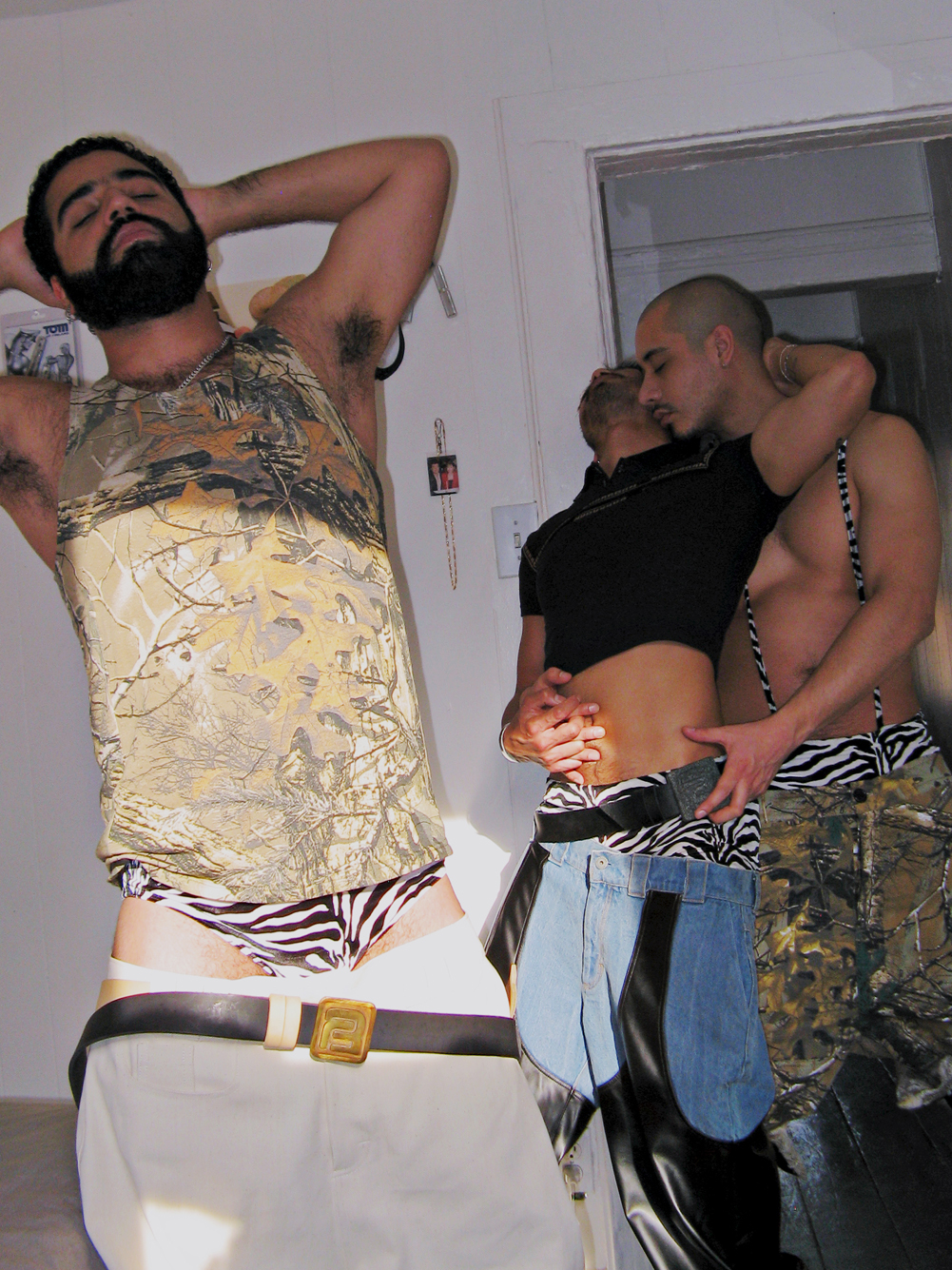
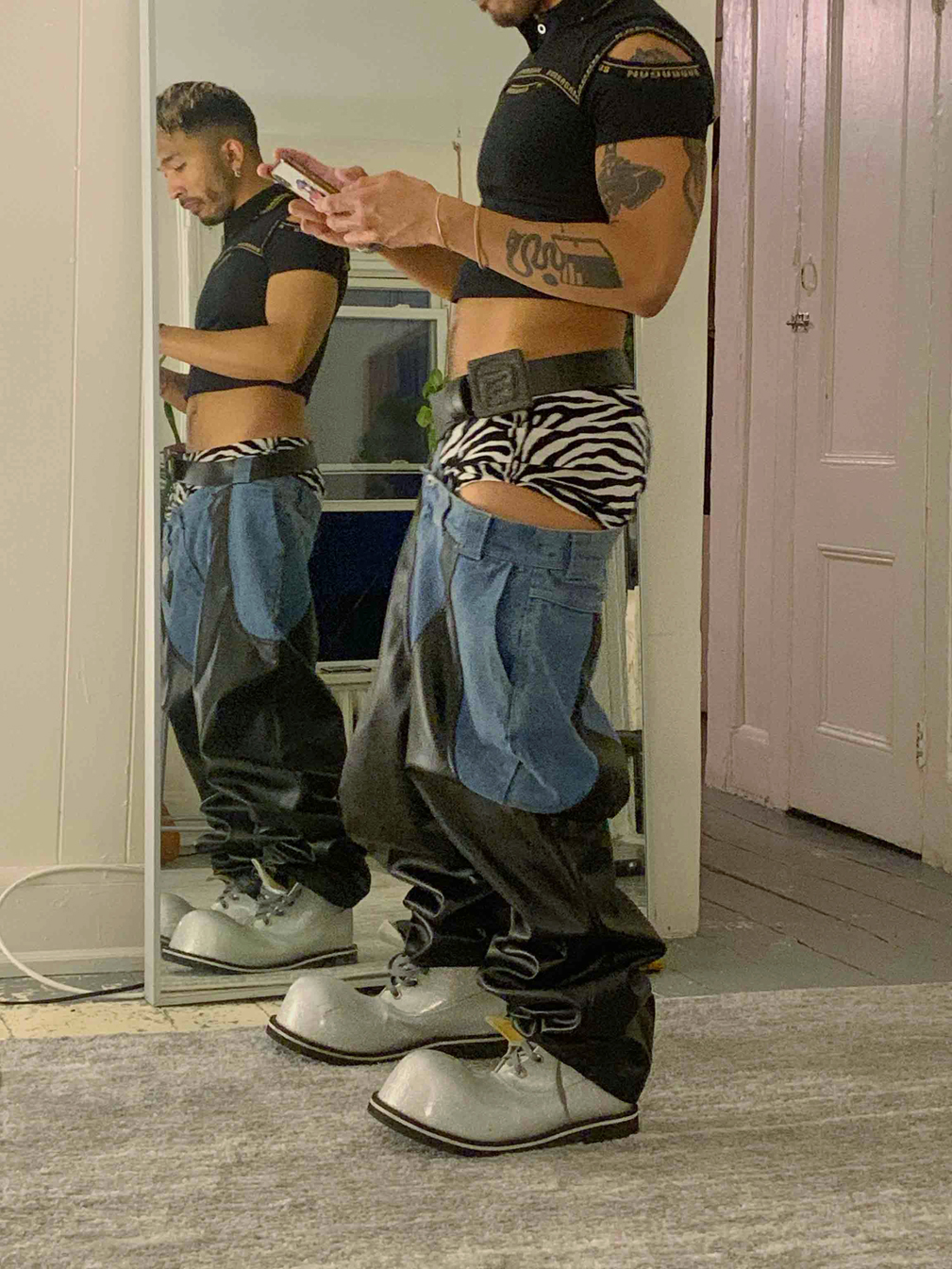
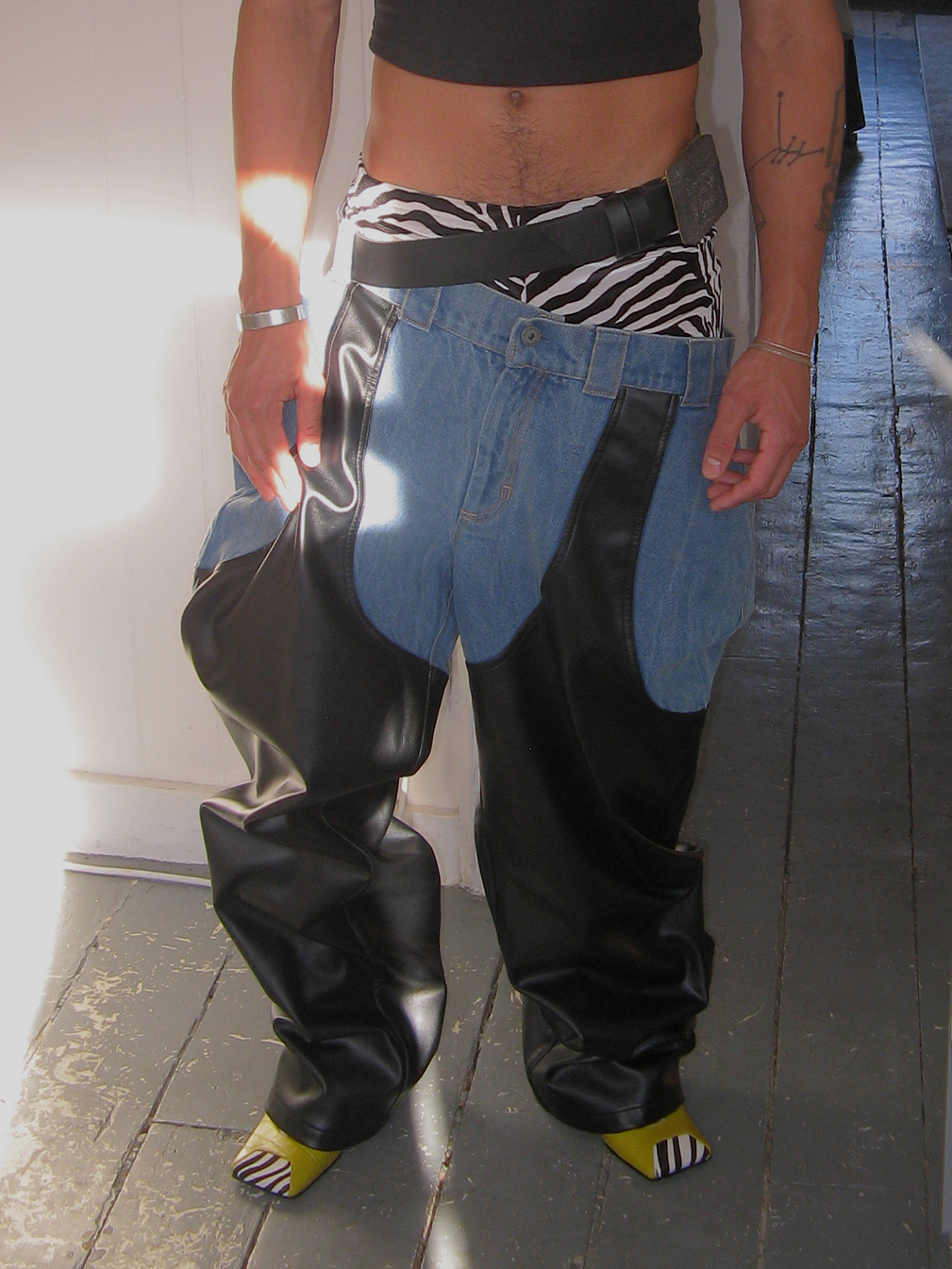
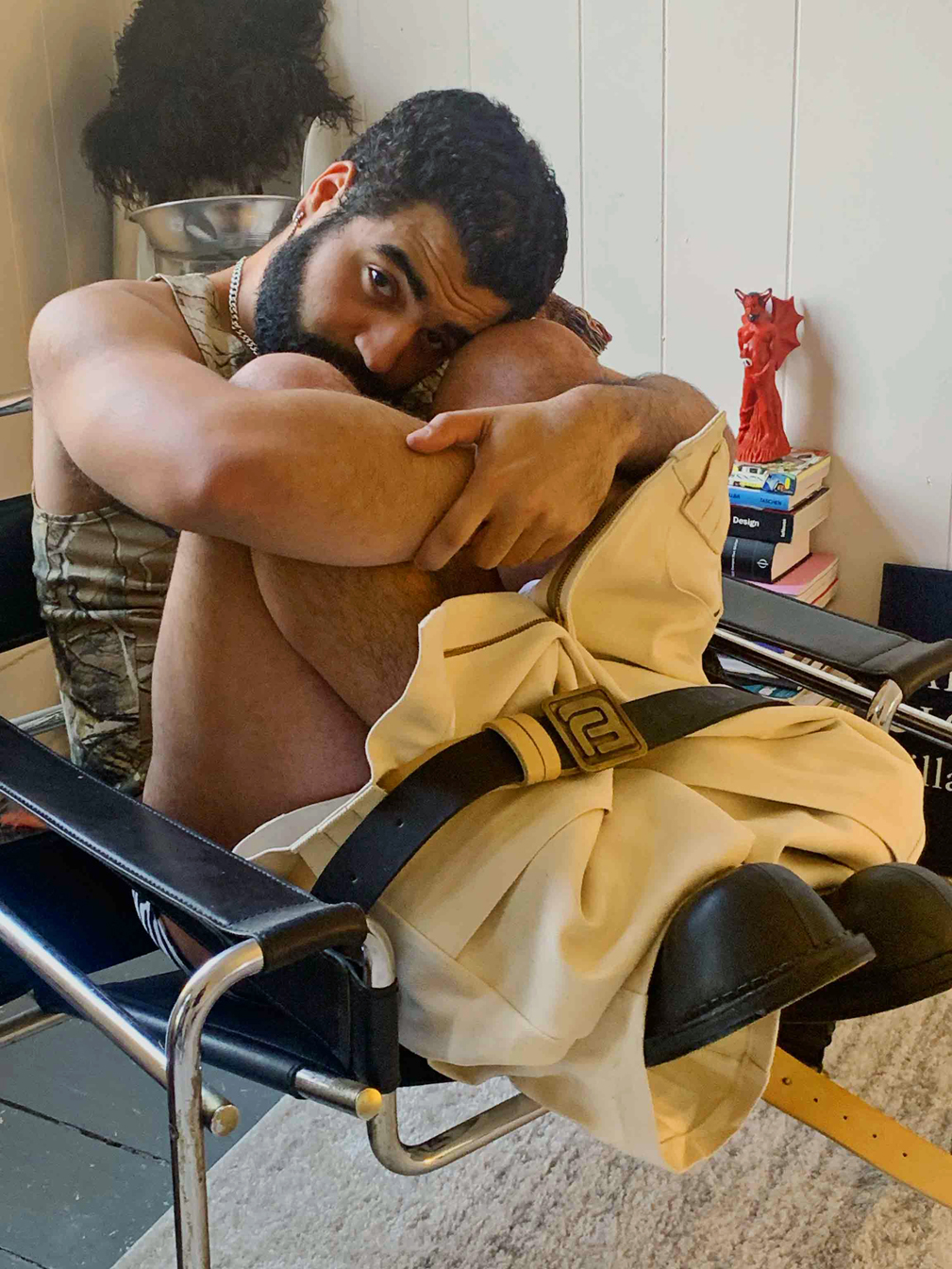
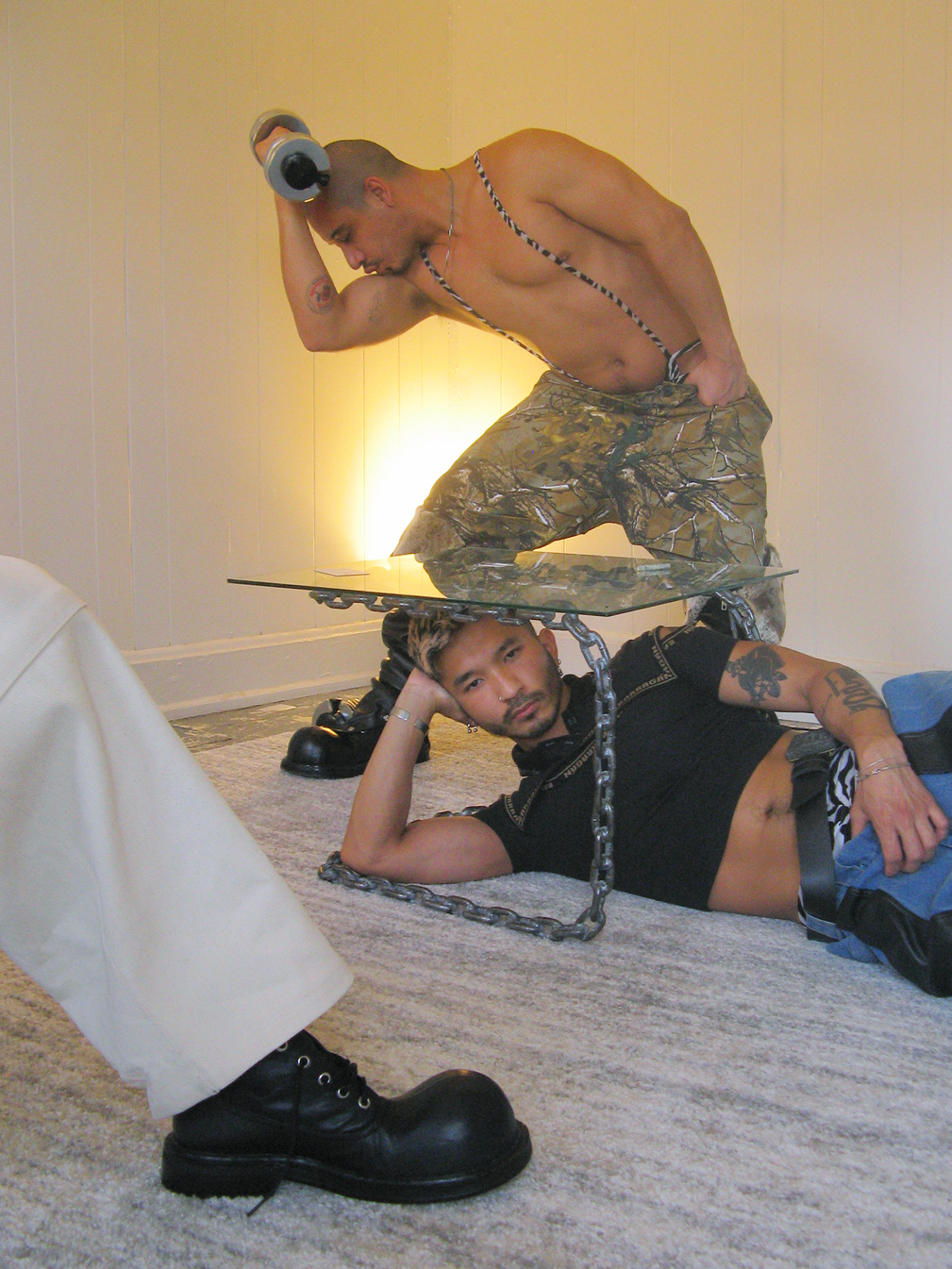
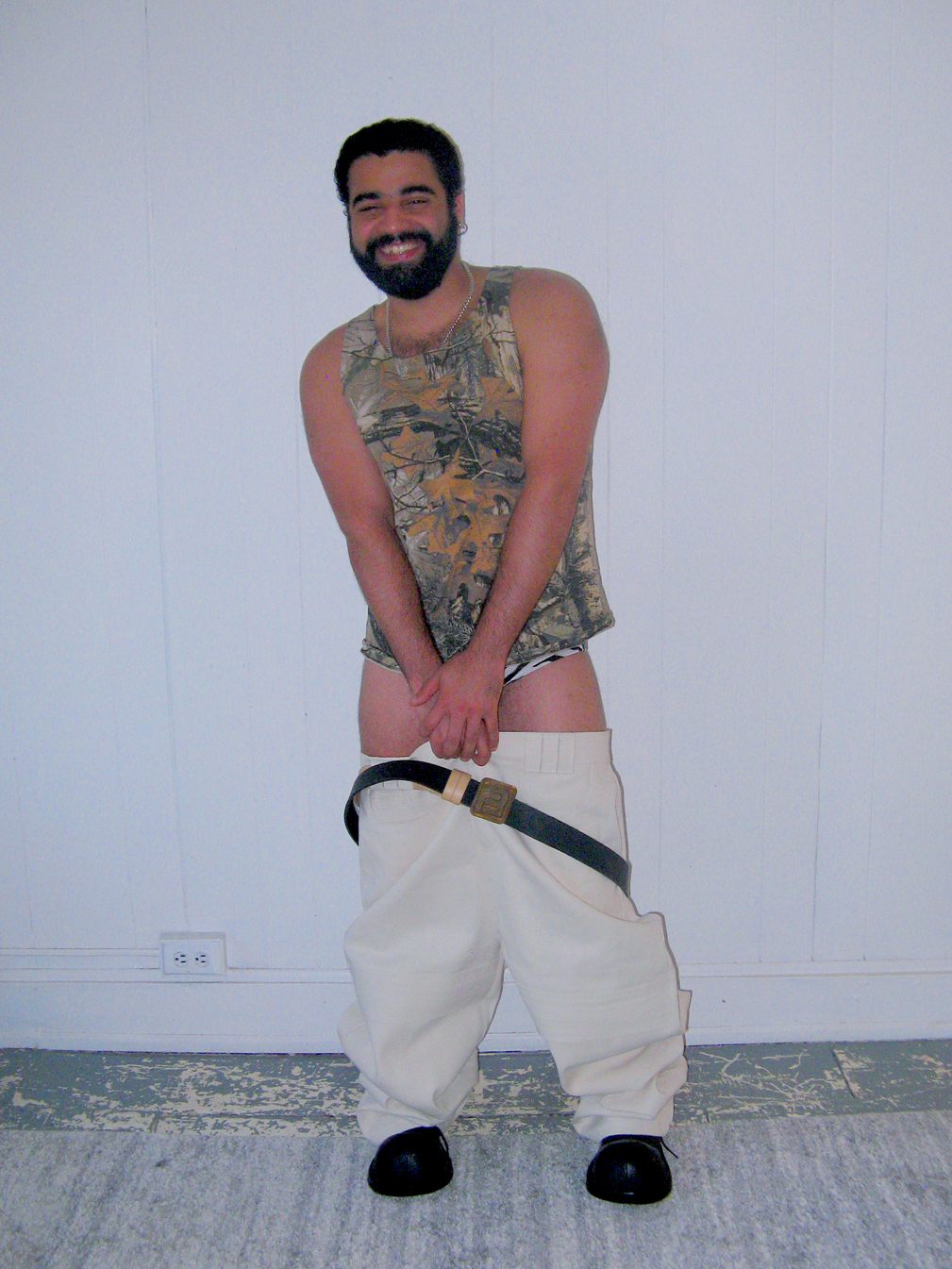
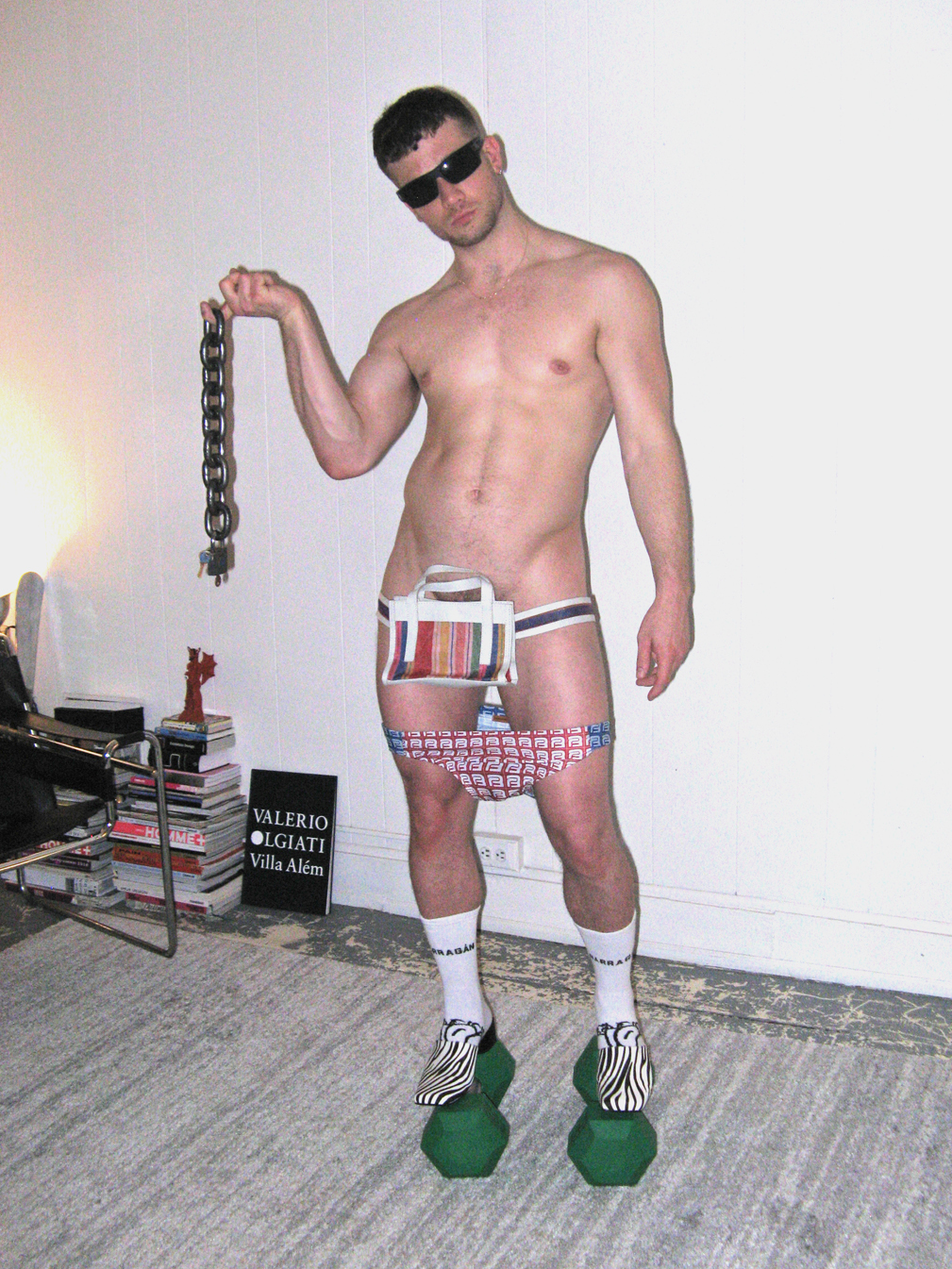
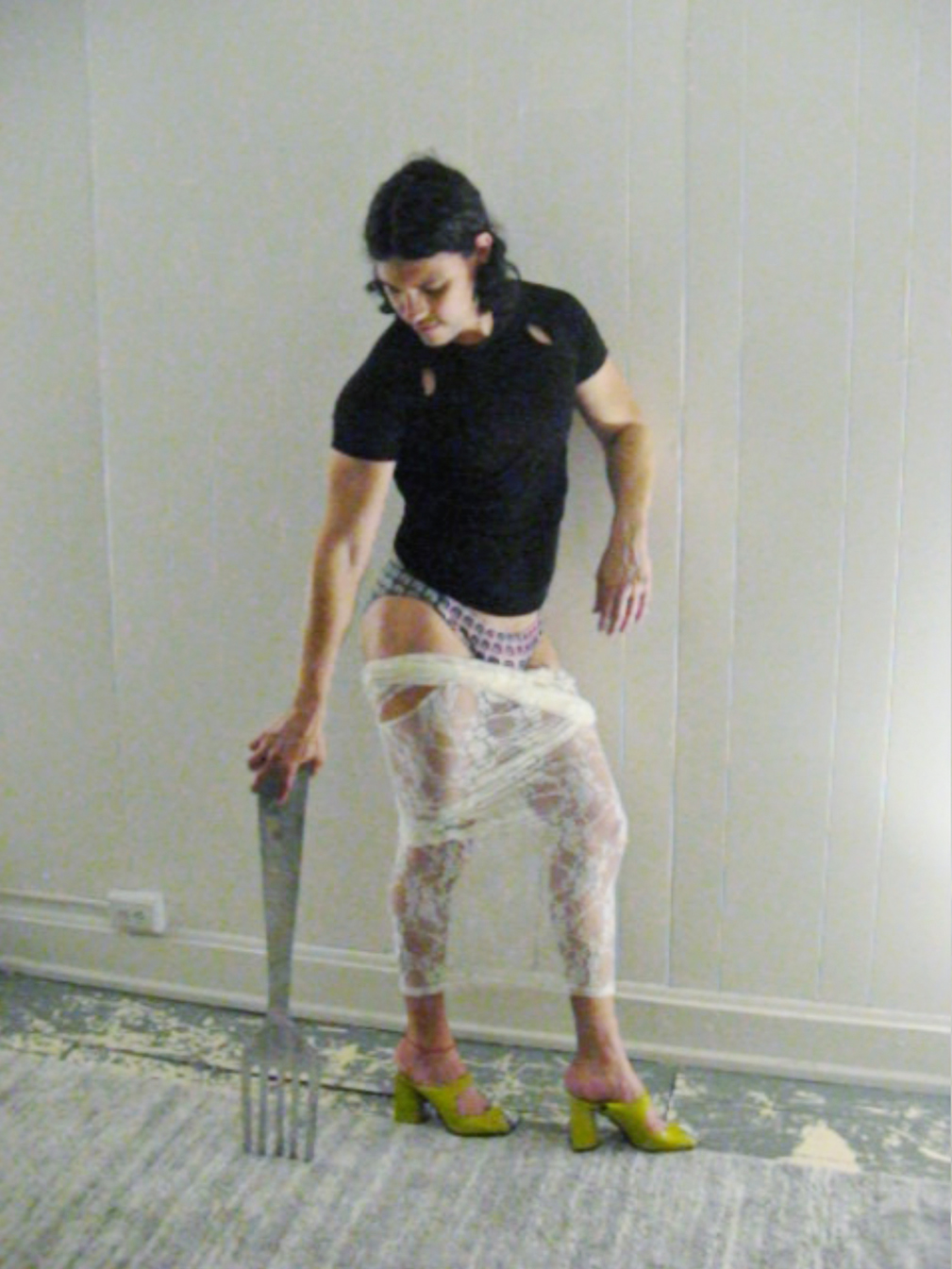
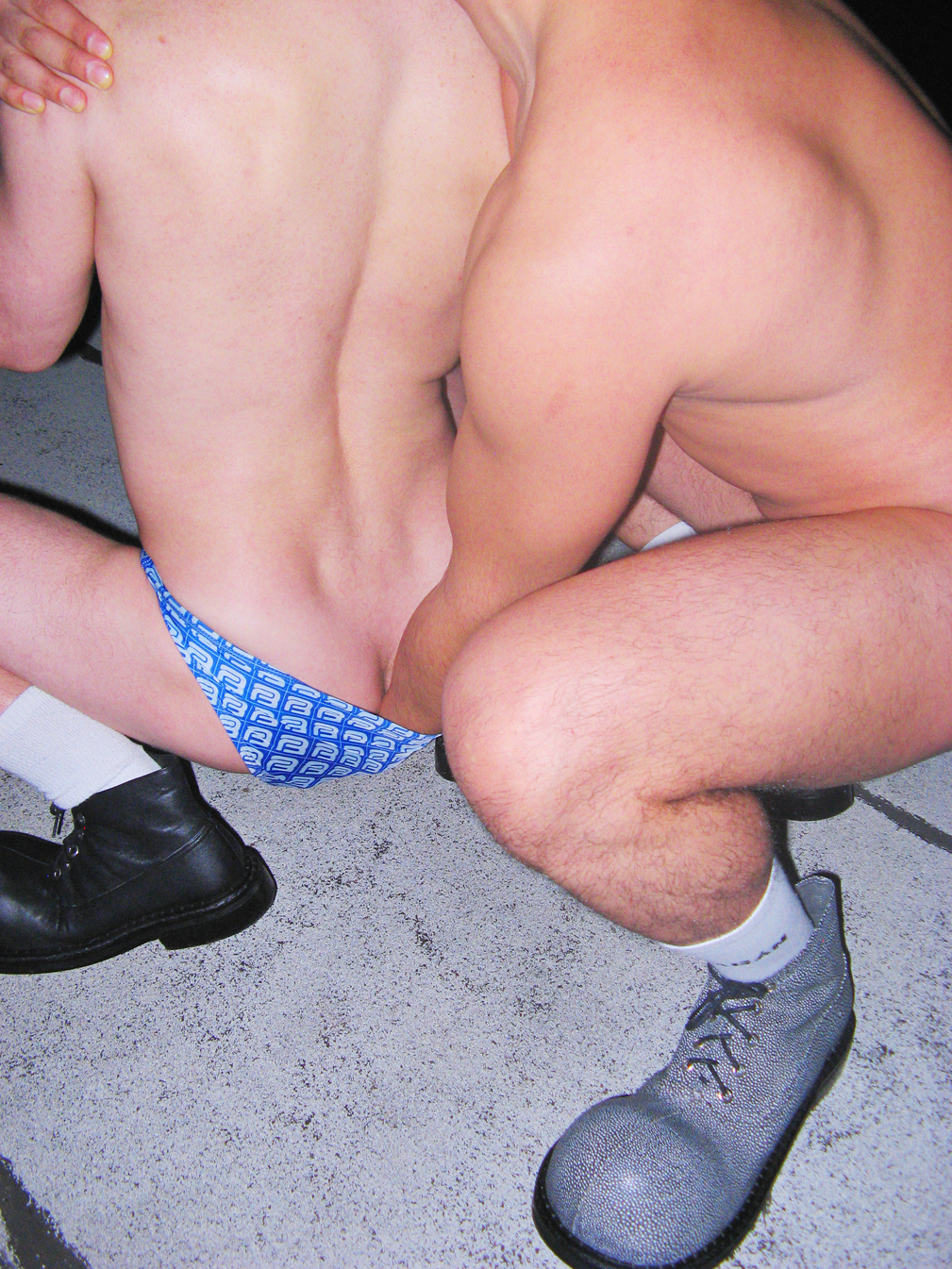
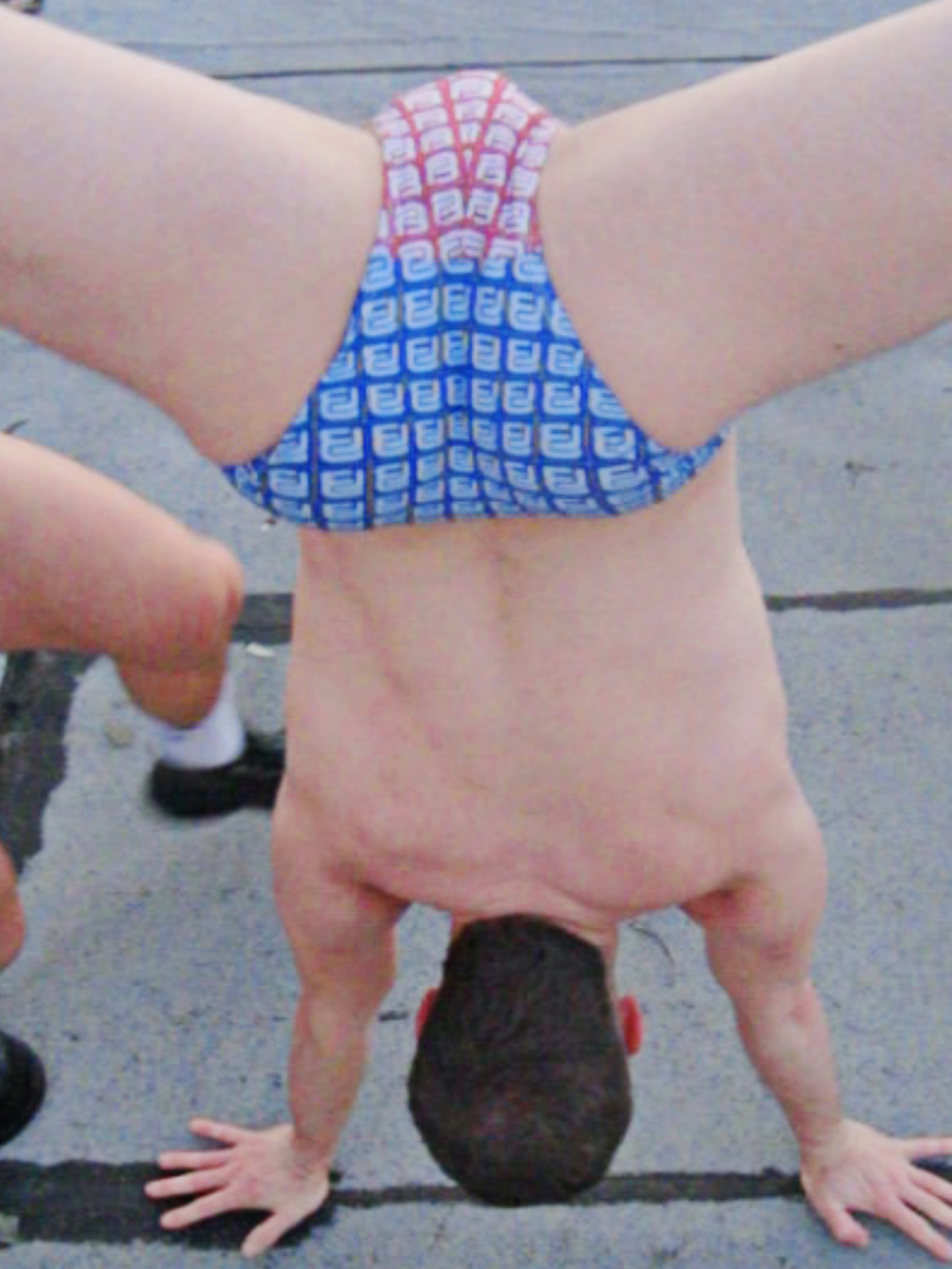
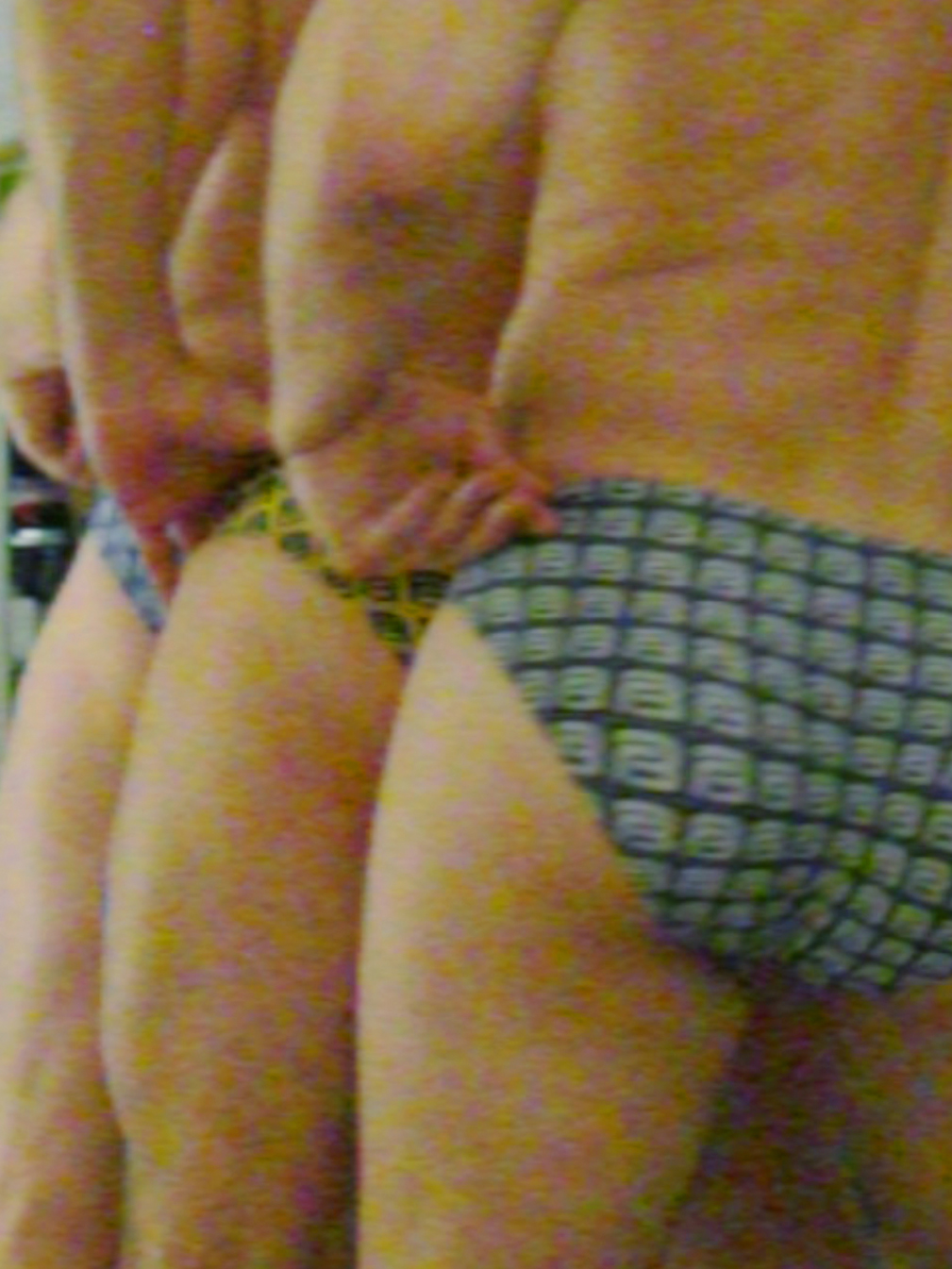
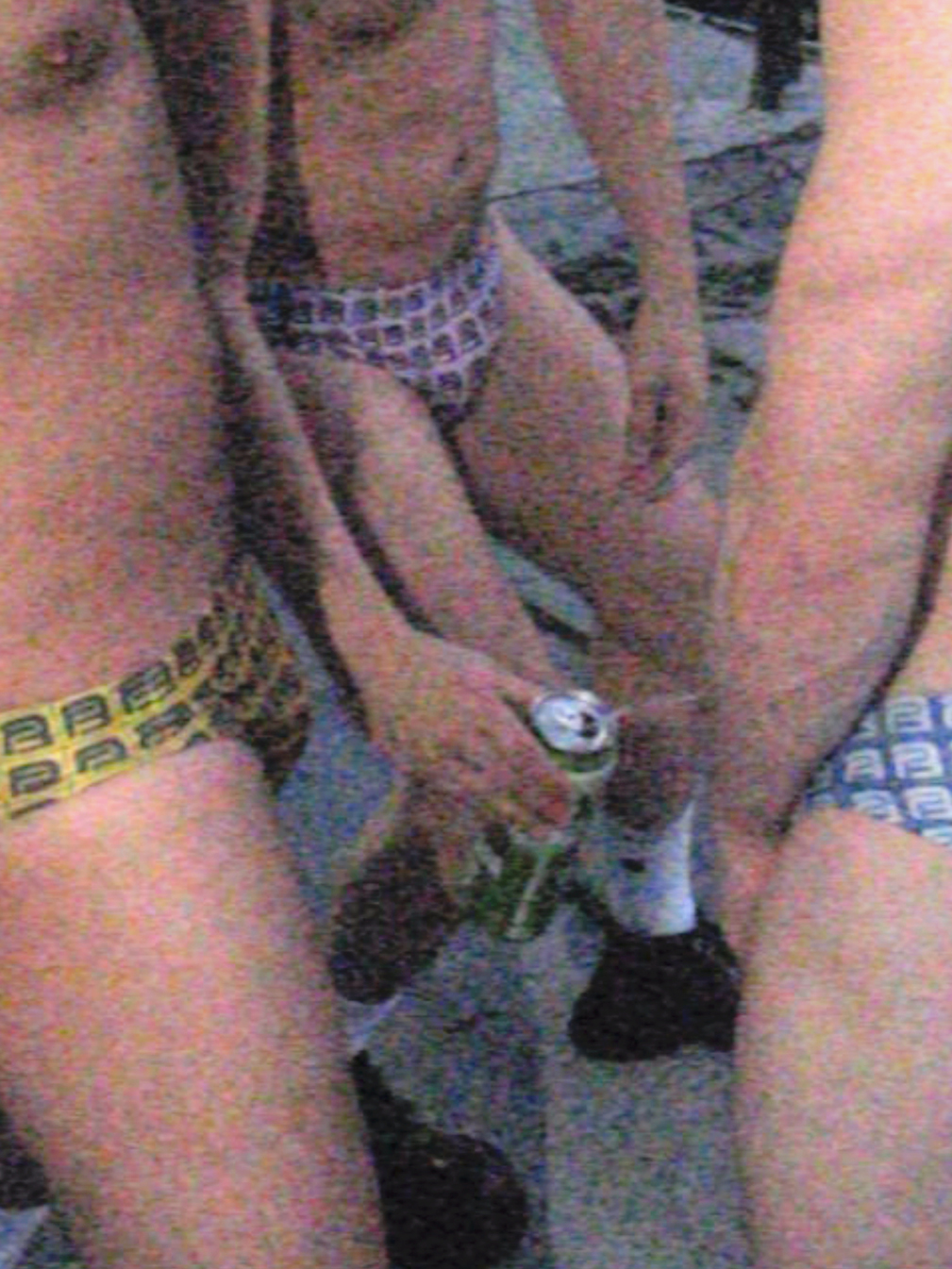
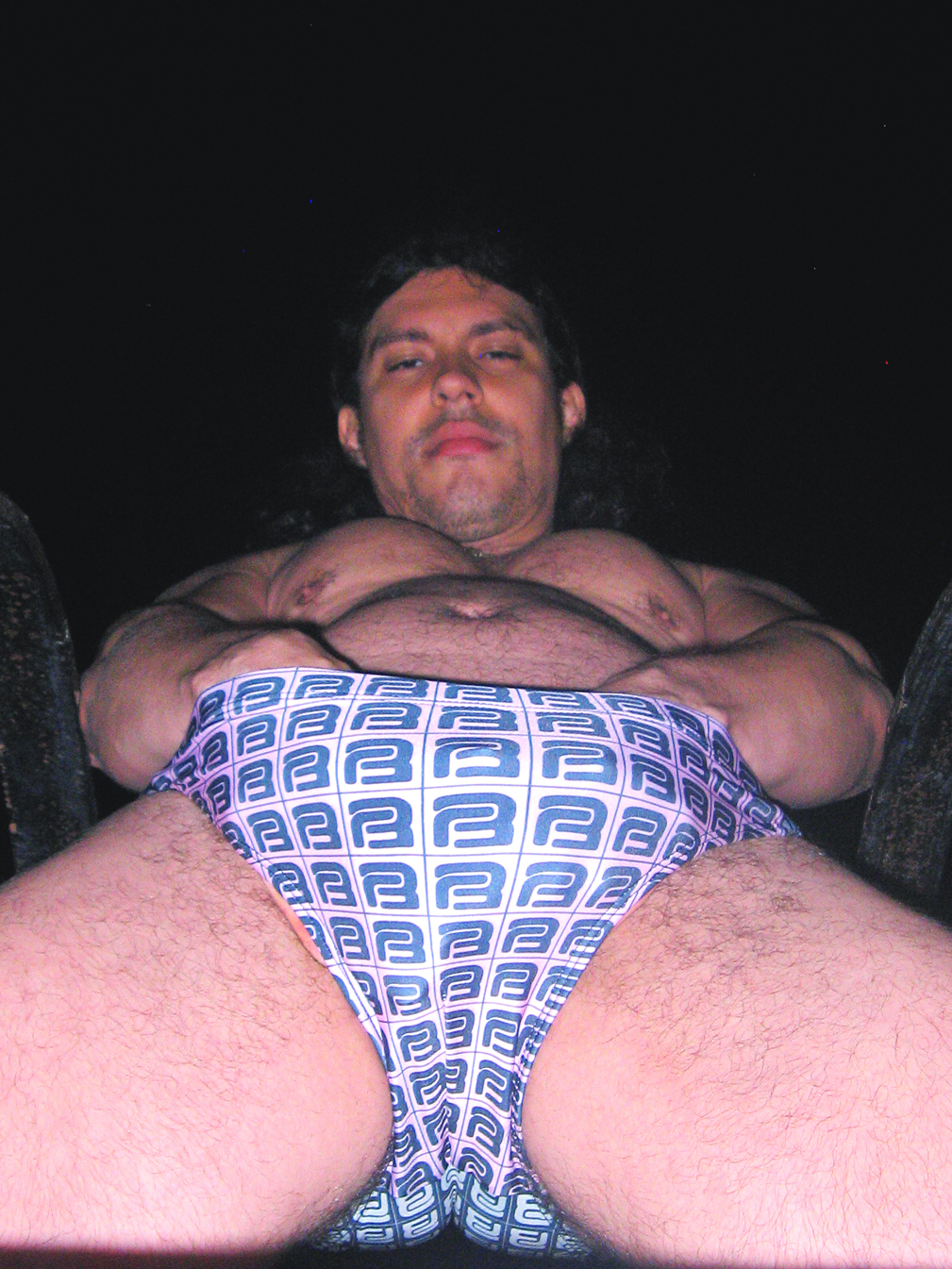
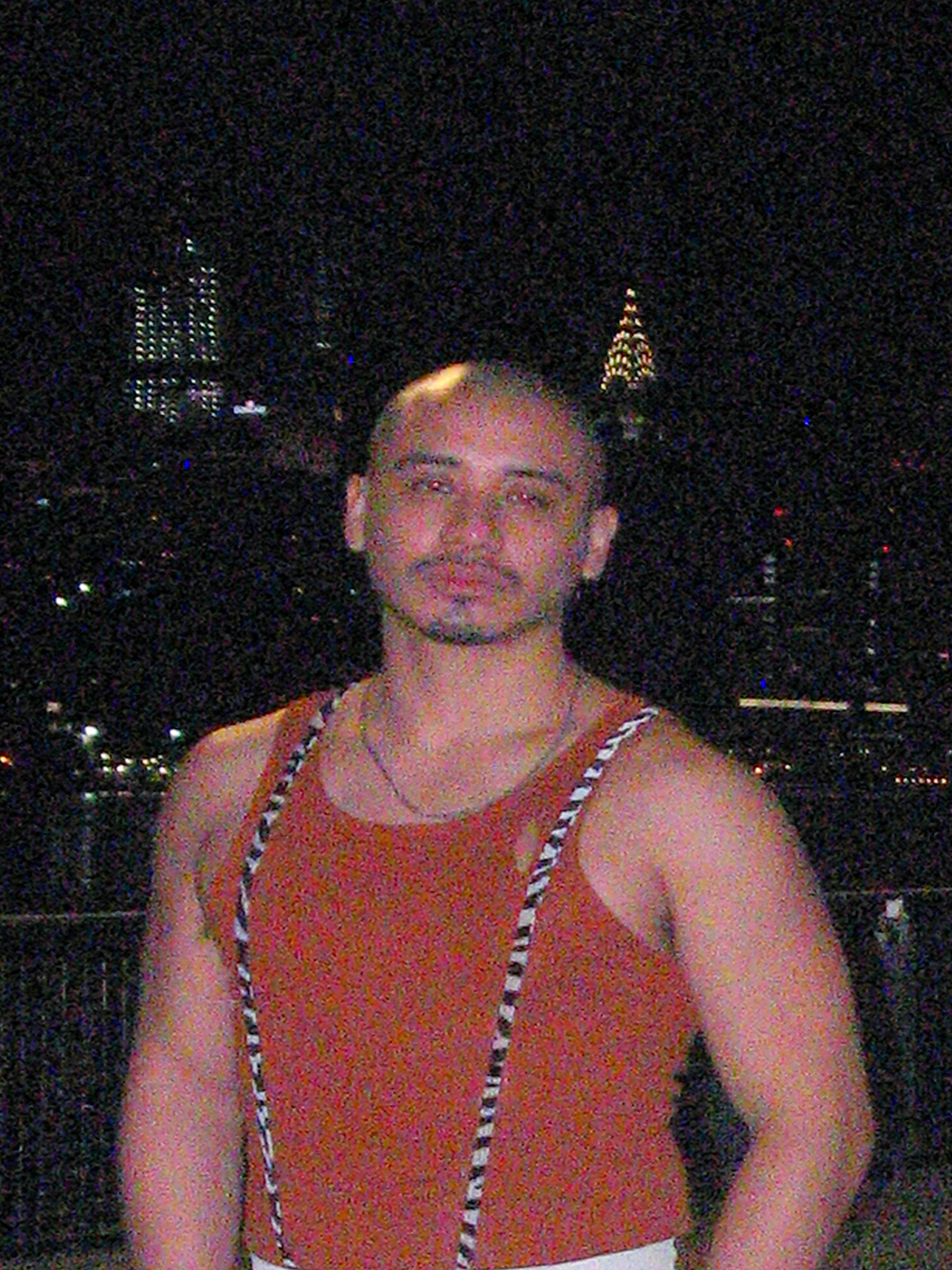
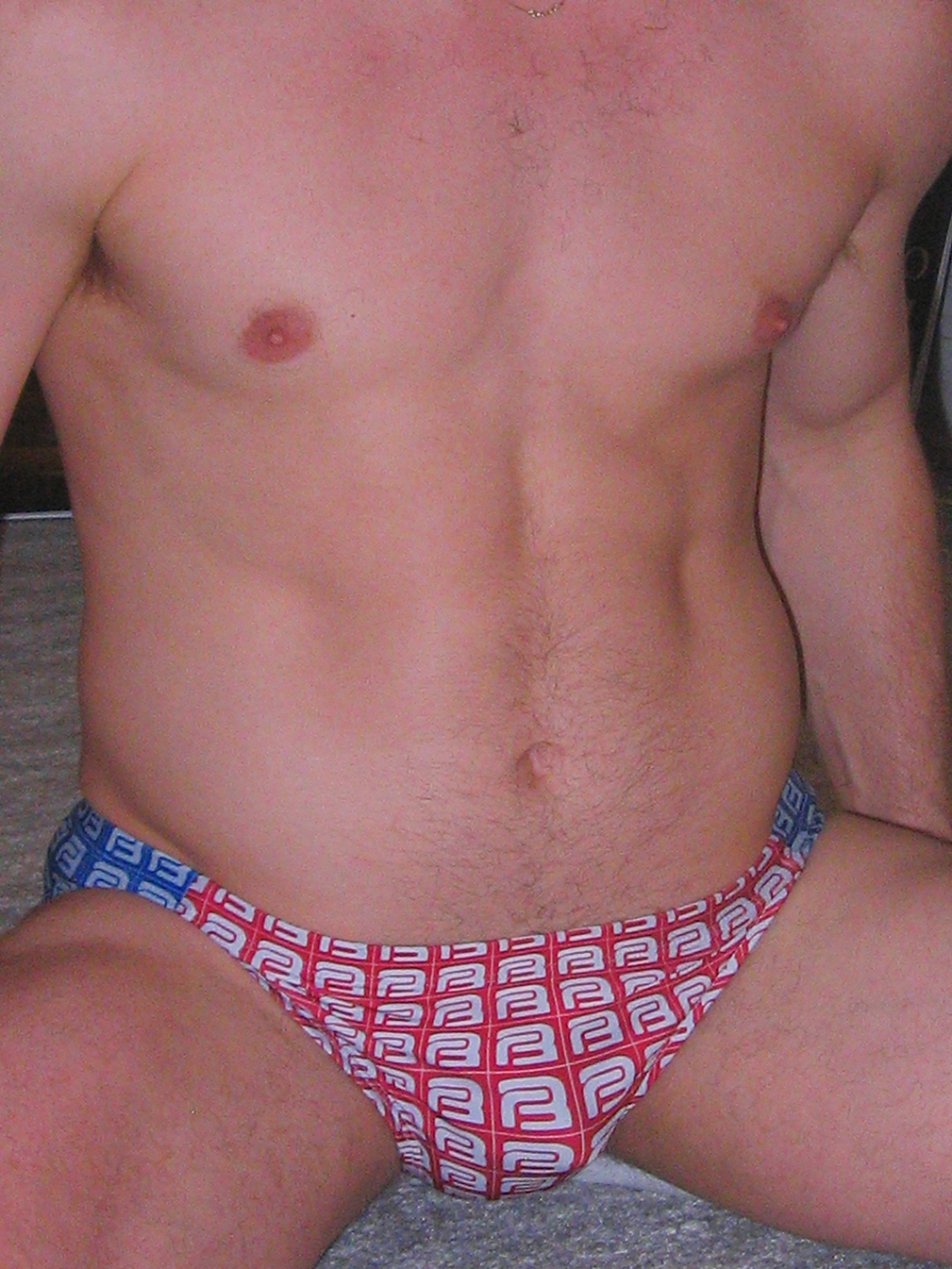
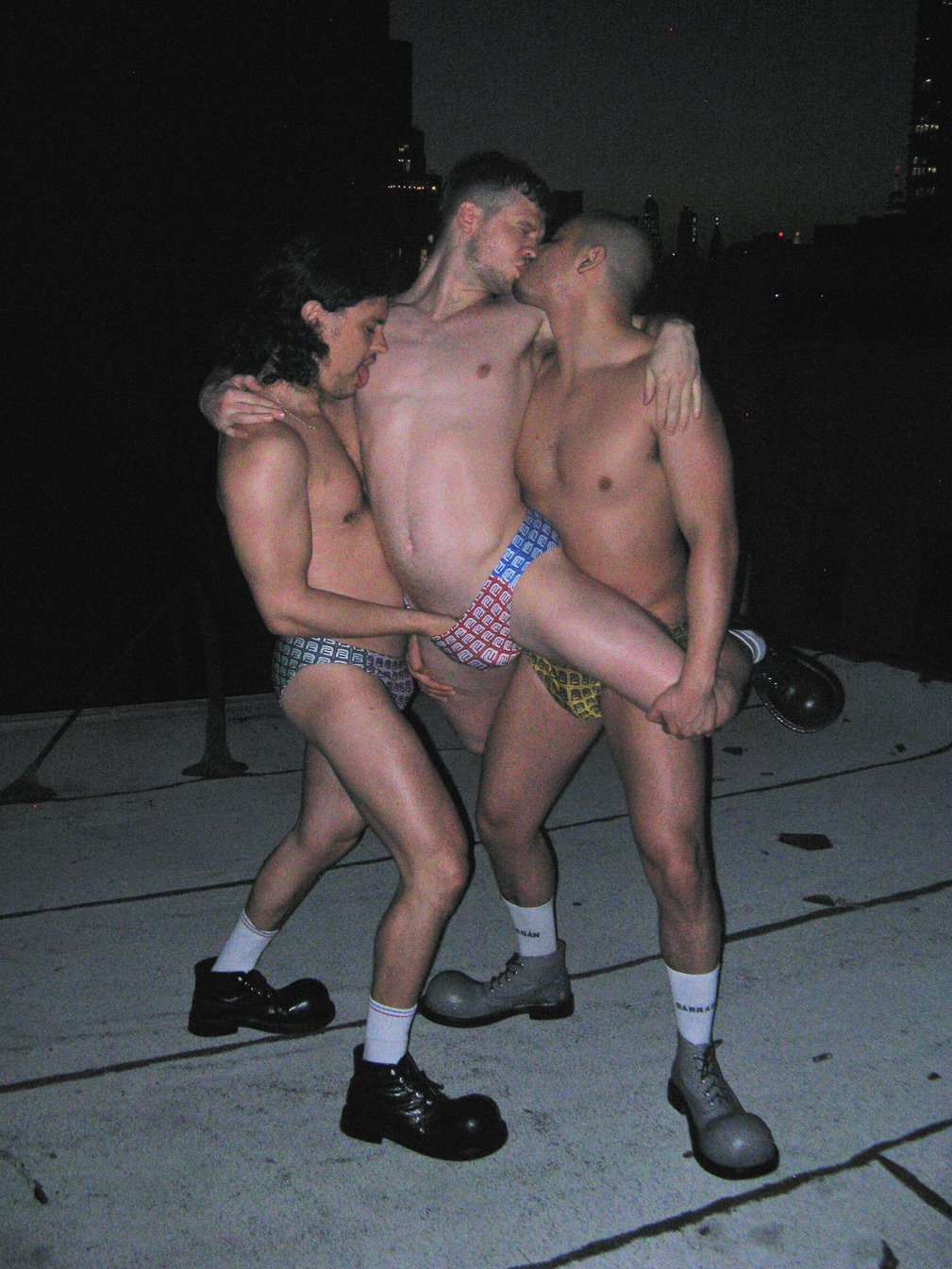
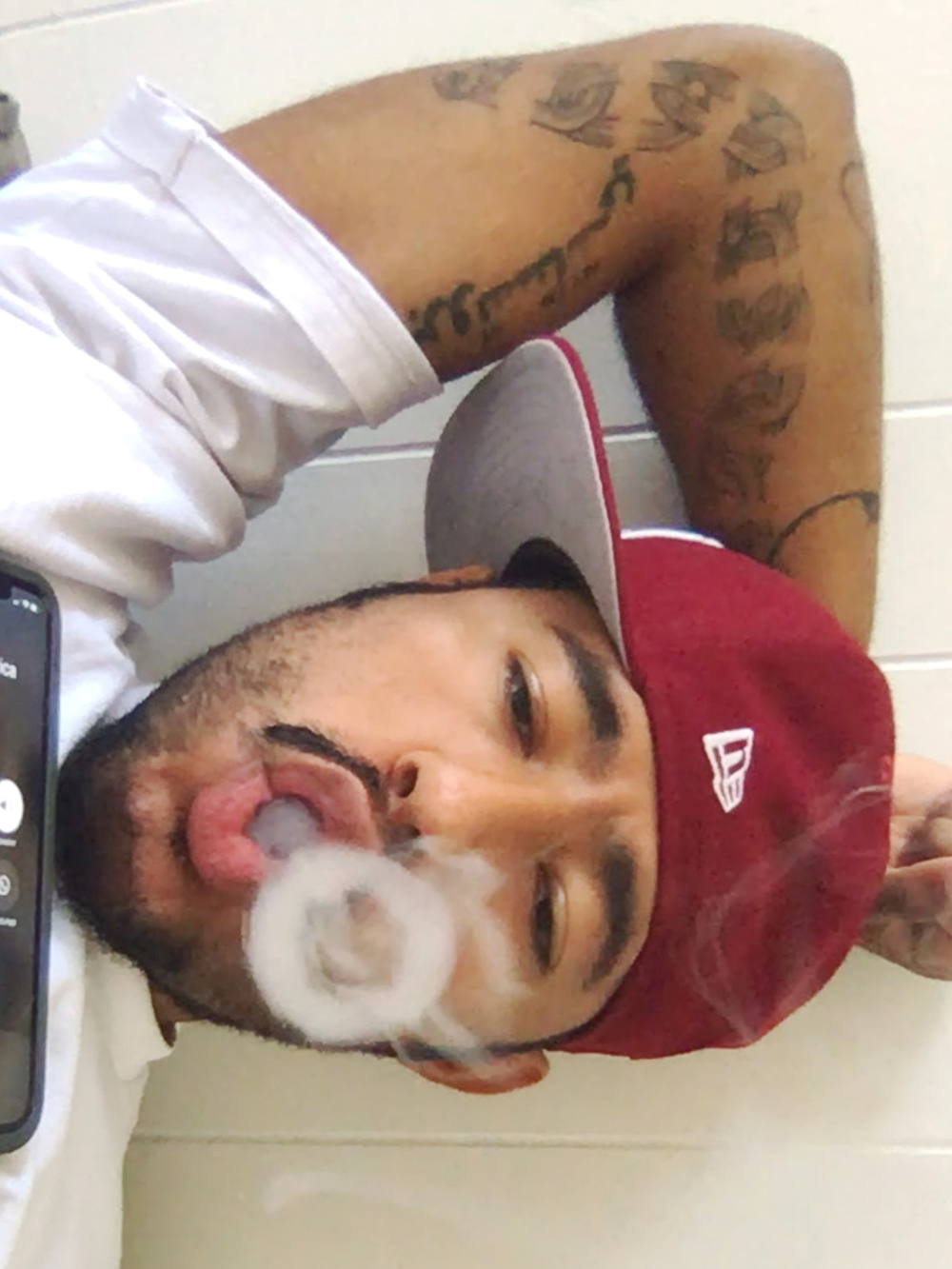
Cooking. Lifting. Fisting. Crafting. Drugs. Tattooing. Edging. If any of these activities interest you, might I introduce Barragán, the brand created by Mexico City native Victor Barragán. He’s hesitant to call it a lifestyle brand. I’m not sure he’s sold on calling it a fashion brand either, but Barragán does understand that the community who wears his designs obviously have shared values, interests, and behaviors. Long-term, a brand should have more touchpoints than just clothes.
Barragán has been based in NYC since 2015, but the clothes are inspired by a global fashion sense most common in raver, club, and gothic subcultures. PVC and vinyl designs were early interests, but later he moved onto vegan leather for its functionality. It’s both lighter and more durable than real leather. Plus he’d rather not support animal-skin markets.
Like Victor, I was in Brooklyn during New York’s stay-at-home order, but based on the photos provided to accompany this text, I assume he had more fun. It would be easy to read Barragán’s lifestyle and aesthetic choices as some kind of automated reaction to his Catholic upbringing in a working class environment, but if we drop the trope for a moment, we see a purity to the brand’s infectious sexual ethos. “Let’s break down the association and judgment of what it means to express sexuality in appearance,” he wrote to me. “Maybe this new non-physical normal will give us breathing room to not worry about physical violations because of the way we dress.” It’s a good argument for a designer like Barragán who likes to highlight what’s not traditionally exposed like under-boob or nipples. “It’s a kind of body positivity that people are still not used to,” he acknowledged.
When I asked the inevitable question about the future of fashion and where Barragán sees his brand going, he reminded me that the fashion system is very archaic and hierarchical. The way it was operating doesn’t make sense or apply anymore. He plans to incite change doing fashion his way, which is more artistic than commerce-driven. “We are now propelled to creatively think outside the box,” he said. Barragán wants to connect with their audience. If it’s you, they want to give you what you want. They don’t want to just cater to the system. So, stay tuned. Barragán may find you soon.
This story is printed in GAYLETTER Issue 12, get your copy here.
Models: Elvin Tavarez, Eddie Lathormvang, Christian Lopez, Daniel Leyva and Matthew Raviotta.
Cooking. Lifting. Fisting. Crafting. Drugs. Tattooing. Edging. If any of these activities interest you, might I introduce Barragán, the brand created by Mexico City native Victor Barragán. He’s hesitant to call it a lifestyle brand. I’m not sure he’s sold on calling it a fashion brand either, but Barragán does understand that the community who wears his designs obviously have shared values, interests, and behaviors. Long-term, a brand should have more touchpoints than just clothes.
Barragán has been based in NYC since 2015, but the clothes are inspired by a global fashion sense most common in raver, club, and gothic subcultures. PVC and vinyl designs were early interests, but later he moved onto vegan leather for its functionality. It’s both lighter and more durable than real leather. Plus he’d rather not support animal-skin markets.
Like Victor, I was in Brooklyn during New York’s stay-at-home order, but based on the photos provided to accompany this text, I assume he had more fun. It would be easy to read Barragán’s lifestyle and aesthetic choices as some kind of automated reaction to his Catholic upbringing in a working class environment, but if we drop the trope for a moment, we see a purity to the brand’s infectious sexual ethos. “Let’s break down the association and judgment of what it means to express sexuality in appearance,” he wrote to me. “Maybe this new non-physical normal will give us breathing room to not worry about physical violations because of the way we dress.” It’s a good argument for a designer like Barragán who likes to highlight what’s not traditionally exposed like under-boob or nipples. “It’s a kind of body positivity that people are still not used to,” he acknowledged.
When I asked the inevitable question about the future of fashion and where Barragán sees his brand going, he reminded me that the fashion system is very archaic and hierarchical. The way it was operating doesn’t make sense or apply anymore. He plans to incite change doing fashion his way, which is more artistic than commerce-driven. “We are now propelled to creatively think outside the box,” he said. Barragán wants to connect with their audience. If it’s you, they want to give you what you want. They don’t want to just cater to the system. So, stay tuned. Barragán may find you soon.
This story is printed in GAYLETTER Issue 12, get your copy here.
Models: Elvin Tavarez, Eddie Lathormvang, Christian Lopez, Daniel Leyva and Matthew Raviotta.
Cooking. Lifting. Fisting. Crafting. Drugs. Tattooing. Edging. If any of these activities interest you, might I introduce Barragán, the brand created by Mexico City native Victor Barragán. He’s hesitant to call it a lifestyle brand. I’m not sure he’s sold on calling it a fashion brand either, but Barragán does understand that the community who wears his designs obviously have shared values, interests, and behaviors. Long-term, a brand should have more touchpoints than just clothes.
Barragán has been based in NYC since 2015, but the clothes are inspired by a global fashion sense most common in raver, club, and gothic subcultures. PVC and vinyl designs were early interests, but later he moved onto vegan leather for its functionality. It’s both lighter and more durable than real leather. Plus he’d rather not support animal-skin markets.
Like Victor, I was in Brooklyn during New York’s stay-at-home order, but based on the photos provided to accompany this text, I assume he had more fun. It would be easy to read Barragán’s lifestyle and aesthetic choices as some kind of automated reaction to his Catholic upbringing in a working class environment, but if we drop the trope for a moment, we see a purity to the brand’s infectious sexual ethos. “Let’s break down the association and judgment of what it means to express sexuality in appearance,” he wrote to me. “Maybe this new non-physical normal will give us breathing room to not worry about physical violations because of the way we dress.” It’s a good argument for a designer like Barragán who likes to highlight what’s not traditionally exposed like under-boob or nipples. “It’s a kind of body positivity that people are still not used to,” he acknowledged.
When I asked the inevitable question about the future of fashion and where Barragán sees his brand going, he reminded me that the fashion system is very archaic and hierarchical. The way it was operating doesn’t make sense or apply anymore. He plans to incite change doing fashion his way, which is more artistic than commerce-driven. “We are now propelled to creatively think outside the box,” he said. Barragán wants to connect with their audience. If it’s you, they want to give you what you want. They don’t want to just cater to the system. So, stay tuned. Barragán may find you soon.
This story is printed in GAYLETTER Issue 12, get your copy here.
Models: Elvin Tavarez, Eddie Lathormvang, Christian Lopez, Daniel Leyva and Matthew Raviotta.
Cooking. Lifting. Fisting. Crafting. Drugs. Tattooing. Edging. If any of these activities interest you, might I introduce Barragán, the brand created by Mexico City native Victor Barragán. He’s hesitant to call it a lifestyle brand. I’m not sure he’s sold on calling it a fashion brand either, but Barragán does understand that the community who wears his designs obviously have shared values, interests, and behaviors. Long-term, a brand should have more touchpoints than just clothes.
Barragán has been based in NYC since 2015, but the clothes are inspired by a global fashion sense most common in raver, club, and gothic subcultures. PVC and vinyl designs were early interests, but later he moved onto vegan leather for its functionality. It’s both lighter and more durable than real leather. Plus he’d rather not support animal-skin markets.
Like Victor, I was in Brooklyn during New York’s stay-at-home order, but based on the photos provided to accompany this text, I assume he had more fun. It would be easy to read Barragán’s lifestyle and aesthetic choices as some kind of automated reaction to his Catholic upbringing in a working class environment, but if we drop the trope for a moment, we see a purity to the brand’s infectious sexual ethos. “Let’s break down the association and judgment of what it means to express sexuality in appearance,” he wrote to me. “Maybe this new non-physical normal will give us breathing room to not worry about physical violations because of the way we dress.” It’s a good argument for a designer like Barragán who likes to highlight what’s not traditionally exposed like under-boob or nipples. “It’s a kind of body positivity that people are still not used to,” he acknowledged.
When I asked the inevitable question about the future of fashion and where Barragán sees his brand going, he reminded me that the fashion system is very archaic and hierarchical. The way it was operating doesn’t make sense or apply anymore. He plans to incite change doing fashion his way, which is more artistic than commerce-driven. “We are now propelled to creatively think outside the box,” he said. Barragán wants to connect with their audience. If it’s you, they want to give you what you want. They don’t want to just cater to the system. So, stay tuned. Barragán may find you soon.
This story is printed in GAYLETTER Issue 12, get your copy here.
Models: Elvin Tavarez, Eddie Lathormvang, Christian Lopez, Daniel Leyva and Matthew Raviotta.
Cooking. Lifting. Fisting. Crafting. Drugs. Tattooing. Edging. If any of these activities interest you, might I introduce Barragán, the brand created by Mexico City native Victor Barragán. He’s hesitant to call it a lifestyle brand. I’m not sure he’s sold on calling it a fashion brand either, but Barragán does understand that the community who wears his designs obviously have shared values, interests, and behaviors. Long-term, a brand should have more touchpoints than just clothes.
Barragán has been based in NYC since 2015, but the clothes are inspired by a global fashion sense most common in raver, club, and gothic subcultures. PVC and vinyl designs were early interests, but later he moved onto vegan leather for its functionality. It’s both lighter and more durable than real leather. Plus he’d rather not support animal-skin markets.
Like Victor, I was in Brooklyn during New York’s stay-at-home order, but based on the photos provided to accompany this text, I assume he had more fun. It would be easy to read Barragán’s lifestyle and aesthetic choices as some kind of automated reaction to his Catholic upbringing in a working class environment, but if we drop the trope for a moment, we see a purity to the brand’s infectious sexual ethos. “Let’s break down the association and judgment of what it means to express sexuality in appearance,” he wrote to me. “Maybe this new non-physical normal will give us breathing room to not worry about physical violations because of the way we dress.” It’s a good argument for a designer like Barragán who likes to highlight what’s not traditionally exposed like under-boob or nipples. “It’s a kind of body positivity that people are still not used to,” he acknowledged.
When I asked the inevitable question about the future of fashion and where Barragán sees his brand going, he reminded me that the fashion system is very archaic and hierarchical. The way it was operating doesn’t make sense or apply anymore. He plans to incite change doing fashion his way, which is more artistic than commerce-driven. “We are now propelled to creatively think outside the box,” he said. Barragán wants to connect with their audience. If it’s you, they want to give you what you want. They don’t want to just cater to the system. So, stay tuned. Barragán may find you soon.
This story is printed in GAYLETTER Issue 12, get your copy here.
Models: Elvin Tavarez, Eddie Lathormvang, Christian Lopez, Daniel Leyva and Matthew Raviotta.
Cooking. Lifting. Fisting. Crafting. Drugs. Tattooing. Edging. If any of these activities interest you, might I introduce Barragán, the brand created by Mexico City native Victor Barragán. He’s hesitant to call it a lifestyle brand. I’m not sure he’s sold on calling it a fashion brand either, but Barragán does understand that the community who wears his designs obviously have shared values, interests, and behaviors. Long-term, a brand should have more touchpoints than just clothes.
Barragán has been based in NYC since 2015, but the clothes are inspired by a global fashion sense most common in raver, club, and gothic subcultures. PVC and vinyl designs were early interests, but later he moved onto vegan leather for its functionality. It’s both lighter and more durable than real leather. Plus he’d rather not support animal-skin markets.
Like Victor, I was in Brooklyn during New York’s stay-at-home order, but based on the photos provided to accompany this text, I assume he had more fun. It would be easy to read Barragán’s lifestyle and aesthetic choices as some kind of automated reaction to his Catholic upbringing in a working class environment, but if we drop the trope for a moment, we see a purity to the brand’s infectious sexual ethos. “Let’s break down the association and judgment of what it means to express sexuality in appearance,” he wrote to me. “Maybe this new non-physical normal will give us breathing room to not worry about physical violations because of the way we dress.” It’s a good argument for a designer like Barragán who likes to highlight what’s not traditionally exposed like under-boob or nipples. “It’s a kind of body positivity that people are still not used to,” he acknowledged.
When I asked the inevitable question about the future of fashion and where Barragán sees his brand going, he reminded me that the fashion system is very archaic and hierarchical. The way it was operating doesn’t make sense or apply anymore. He plans to incite change doing fashion his way, which is more artistic than commerce-driven. “We are now propelled to creatively think outside the box,” he said. Barragán wants to connect with their audience. If it’s you, they want to give you what you want. They don’t want to just cater to the system. So, stay tuned. Barragán may find you soon.
This story is printed in GAYLETTER Issue 12, get your copy here.
Models: Elvin Tavarez, Eddie Lathormvang, Christian Lopez, Daniel Leyva and Matthew Raviotta.
Cooking. Lifting. Fisting. Crafting. Drugs. Tattooing. Edging. If any of these activities interest you, might I introduce Barragán, the brand created by Mexico City native Victor Barragán. He’s hesitant to call it a lifestyle brand. I’m not sure he’s sold on calling it a fashion brand either, but Barragán does understand that the community who wears his designs obviously have shared values, interests, and behaviors. Long-term, a brand should have more touchpoints than just clothes.
Barragán has been based in NYC since 2015, but the clothes are inspired by a global fashion sense most common in raver, club, and gothic subcultures. PVC and vinyl designs were early interests, but later he moved onto vegan leather for its functionality. It’s both lighter and more durable than real leather. Plus he’d rather not support animal-skin markets.
Like Victor, I was in Brooklyn during New York’s stay-at-home order, but based on the photos provided to accompany this text, I assume he had more fun. It would be easy to read Barragán’s lifestyle and aesthetic choices as some kind of automated reaction to his Catholic upbringing in a working class environment, but if we drop the trope for a moment, we see a purity to the brand’s infectious sexual ethos. “Let’s break down the association and judgment of what it means to express sexuality in appearance,” he wrote to me. “Maybe this new non-physical normal will give us breathing room to not worry about physical violations because of the way we dress.” It’s a good argument for a designer like Barragán who likes to highlight what’s not traditionally exposed like under-boob or nipples. “It’s a kind of body positivity that people are still not used to,” he acknowledged.
When I asked the inevitable question about the future of fashion and where Barragán sees his brand going, he reminded me that the fashion system is very archaic and hierarchical. The way it was operating doesn’t make sense or apply anymore. He plans to incite change doing fashion his way, which is more artistic than commerce-driven. “We are now propelled to creatively think outside the box,” he said. Barragán wants to connect with their audience. If it’s you, they want to give you what you want. They don’t want to just cater to the system. So, stay tuned. Barragán may find you soon.
This story is printed in GAYLETTER Issue 12, get your copy here.
Models: Elvin Tavarez, Eddie Lathormvang, Christian Lopez, Daniel Leyva and Matthew Raviotta.
Cooking. Lifting. Fisting. Crafting. Drugs. Tattooing. Edging. If any of these activities interest you, might I introduce Barragán, the brand created by Mexico City native Victor Barragán. He’s hesitant to call it a lifestyle brand. I’m not sure he’s sold on calling it a fashion brand either, but Barragán does understand that the community who wears his designs obviously have shared values, interests, and behaviors. Long-term, a brand should have more touchpoints than just clothes.
Barragán has been based in NYC since 2015, but the clothes are inspired by a global fashion sense most common in raver, club, and gothic subcultures. PVC and vinyl designs were early interests, but later he moved onto vegan leather for its functionality. It’s both lighter and more durable than real leather. Plus he’d rather not support animal-skin markets.
Like Victor, I was in Brooklyn during New York’s stay-at-home order, but based on the photos provided to accompany this text, I assume he had more fun. It would be easy to read Barragán’s lifestyle and aesthetic choices as some kind of automated reaction to his Catholic upbringing in a working class environment, but if we drop the trope for a moment, we see a purity to the brand’s infectious sexual ethos. “Let’s break down the association and judgment of what it means to express sexuality in appearance,” he wrote to me. “Maybe this new non-physical normal will give us breathing room to not worry about physical violations because of the way we dress.” It’s a good argument for a designer like Barragán who likes to highlight what’s not traditionally exposed like under-boob or nipples. “It’s a kind of body positivity that people are still not used to,” he acknowledged.
When I asked the inevitable question about the future of fashion and where Barragán sees his brand going, he reminded me that the fashion system is very archaic and hierarchical. The way it was operating doesn’t make sense or apply anymore. He plans to incite change doing fashion his way, which is more artistic than commerce-driven. “We are now propelled to creatively think outside the box,” he said. Barragán wants to connect with their audience. If it’s you, they want to give you what you want. They don’t want to just cater to the system. So, stay tuned. Barragán may find you soon.
This story is printed in GAYLETTER Issue 12, get your copy here.
Models: Elvin Tavarez, Eddie Lathormvang, Christian Lopez, Daniel Leyva and Matthew Raviotta.
Cooking. Lifting. Fisting. Crafting. Drugs. Tattooing. Edging. If any of these activities interest you, might I introduce Barragán, the brand created by Mexico City native Victor Barragán. He’s hesitant to call it a lifestyle brand. I’m not sure he’s sold on calling it a fashion brand either, but Barragán does understand that the community who wears his designs obviously have shared values, interests, and behaviors. Long-term, a brand should have more touchpoints than just clothes.
Barragán has been based in NYC since 2015, but the clothes are inspired by a global fashion sense most common in raver, club, and gothic subcultures. PVC and vinyl designs were early interests, but later he moved onto vegan leather for its functionality. It’s both lighter and more durable than real leather. Plus he’d rather not support animal-skin markets.
Like Victor, I was in Brooklyn during New York’s stay-at-home order, but based on the photos provided to accompany this text, I assume he had more fun. It would be easy to read Barragán’s lifestyle and aesthetic choices as some kind of automated reaction to his Catholic upbringing in a working class environment, but if we drop the trope for a moment, we see a purity to the brand’s infectious sexual ethos. “Let’s break down the association and judgment of what it means to express sexuality in appearance,” he wrote to me. “Maybe this new non-physical normal will give us breathing room to not worry about physical violations because of the way we dress.” It’s a good argument for a designer like Barragán who likes to highlight what’s not traditionally exposed like under-boob or nipples. “It’s a kind of body positivity that people are still not used to,” he acknowledged.
When I asked the inevitable question about the future of fashion and where Barragán sees his brand going, he reminded me that the fashion system is very archaic and hierarchical. The way it was operating doesn’t make sense or apply anymore. He plans to incite change doing fashion his way, which is more artistic than commerce-driven. “We are now propelled to creatively think outside the box,” he said. Barragán wants to connect with their audience. If it’s you, they want to give you what you want. They don’t want to just cater to the system. So, stay tuned. Barragán may find you soon.
This story is printed in GAYLETTER Issue 12, get your copy here.
Models: Elvin Tavarez, Eddie Lathormvang, Christian Lopez, Daniel Leyva and Matthew Raviotta.
Cooking. Lifting. Fisting. Crafting. Drugs. Tattooing. Edging. If any of these activities interest you, might I introduce Barragán, the brand created by Mexico City native Victor Barragán. He’s hesitant to call it a lifestyle brand. I’m not sure he’s sold on calling it a fashion brand either, but Barragán does understand that the community who wears his designs obviously have shared values, interests, and behaviors. Long-term, a brand should have more touchpoints than just clothes.
Barragán has been based in NYC since 2015, but the clothes are inspired by a global fashion sense most common in raver, club, and gothic subcultures. PVC and vinyl designs were early interests, but later he moved onto vegan leather for its functionality. It’s both lighter and more durable than real leather. Plus he’d rather not support animal-skin markets.
Like Victor, I was in Brooklyn during New York’s stay-at-home order, but based on the photos provided to accompany this text, I assume he had more fun. It would be easy to read Barragán’s lifestyle and aesthetic choices as some kind of automated reaction to his Catholic upbringing in a working class environment, but if we drop the trope for a moment, we see a purity to the brand’s infectious sexual ethos. “Let’s break down the association and judgment of what it means to express sexuality in appearance,” he wrote to me. “Maybe this new non-physical normal will give us breathing room to not worry about physical violations because of the way we dress.” It’s a good argument for a designer like Barragán who likes to highlight what’s not traditionally exposed like under-boob or nipples. “It’s a kind of body positivity that people are still not used to,” he acknowledged.
When I asked the inevitable question about the future of fashion and where Barragán sees his brand going, he reminded me that the fashion system is very archaic and hierarchical. The way it was operating doesn’t make sense or apply anymore. He plans to incite change doing fashion his way, which is more artistic than commerce-driven. “We are now propelled to creatively think outside the box,” he said. Barragán wants to connect with their audience. If it’s you, they want to give you what you want. They don’t want to just cater to the system. So, stay tuned. Barragán may find you soon.
This story is printed in GAYLETTER Issue 12, get your copy here.
Models: Elvin Tavarez, Eddie Lathormvang, Christian Lopez, Daniel Leyva and Matthew Raviotta.
Cooking. Lifting. Fisting. Crafting. Drugs. Tattooing. Edging. If any of these activities interest you, might I introduce Barragán, the brand created by Mexico City native Victor Barragán. He’s hesitant to call it a lifestyle brand. I’m not sure he’s sold on calling it a fashion brand either, but Barragán does understand that the community who wears his designs obviously have shared values, interests, and behaviors. Long-term, a brand should have more touchpoints than just clothes.
Barragán has been based in NYC since 2015, but the clothes are inspired by a global fashion sense most common in raver, club, and gothic subcultures. PVC and vinyl designs were early interests, but later he moved onto vegan leather for its functionality. It’s both lighter and more durable than real leather. Plus he’d rather not support animal-skin markets.
Like Victor, I was in Brooklyn during New York’s stay-at-home order, but based on the photos provided to accompany this text, I assume he had more fun. It would be easy to read Barragán’s lifestyle and aesthetic choices as some kind of automated reaction to his Catholic upbringing in a working class environment, but if we drop the trope for a moment, we see a purity to the brand’s infectious sexual ethos. “Let’s break down the association and judgment of what it means to express sexuality in appearance,” he wrote to me. “Maybe this new non-physical normal will give us breathing room to not worry about physical violations because of the way we dress.” It’s a good argument for a designer like Barragán who likes to highlight what’s not traditionally exposed like under-boob or nipples. “It’s a kind of body positivity that people are still not used to,” he acknowledged.
When I asked the inevitable question about the future of fashion and where Barragán sees his brand going, he reminded me that the fashion system is very archaic and hierarchical. The way it was operating doesn’t make sense or apply anymore. He plans to incite change doing fashion his way, which is more artistic than commerce-driven. “We are now propelled to creatively think outside the box,” he said. Barragán wants to connect with their audience. If it’s you, they want to give you what you want. They don’t want to just cater to the system. So, stay tuned. Barragán may find you soon.
This story is printed in GAYLETTER Issue 12, get your copy here.
Models: Elvin Tavarez, Eddie Lathormvang, Christian Lopez, Daniel Leyva and Matthew Raviotta.
Cooking. Lifting. Fisting. Crafting. Drugs. Tattooing. Edging. If any of these activities interest you, might I introduce Barragán, the brand created by Mexico City native Victor Barragán. He’s hesitant to call it a lifestyle brand. I’m not sure he’s sold on calling it a fashion brand either, but Barragán does understand that the community who wears his designs obviously have shared values, interests, and behaviors. Long-term, a brand should have more touchpoints than just clothes.
Barragán has been based in NYC since 2015, but the clothes are inspired by a global fashion sense most common in raver, club, and gothic subcultures. PVC and vinyl designs were early interests, but later he moved onto vegan leather for its functionality. It’s both lighter and more durable than real leather. Plus he’d rather not support animal-skin markets.
Like Victor, I was in Brooklyn during New York’s stay-at-home order, but based on the photos provided to accompany this text, I assume he had more fun. It would be easy to read Barragán’s lifestyle and aesthetic choices as some kind of automated reaction to his Catholic upbringing in a working class environment, but if we drop the trope for a moment, we see a purity to the brand’s infectious sexual ethos. “Let’s break down the association and judgment of what it means to express sexuality in appearance,” he wrote to me. “Maybe this new non-physical normal will give us breathing room to not worry about physical violations because of the way we dress.” It’s a good argument for a designer like Barragán who likes to highlight what’s not traditionally exposed like under-boob or nipples. “It’s a kind of body positivity that people are still not used to,” he acknowledged.
When I asked the inevitable question about the future of fashion and where Barragán sees his brand going, he reminded me that the fashion system is very archaic and hierarchical. The way it was operating doesn’t make sense or apply anymore. He plans to incite change doing fashion his way, which is more artistic than commerce-driven. “We are now propelled to creatively think outside the box,” he said. Barragán wants to connect with their audience. If it’s you, they want to give you what you want. They don’t want to just cater to the system. So, stay tuned. Barragán may find you soon.
This story is printed in GAYLETTER Issue 12, get your copy here.
Models: Elvin Tavarez, Eddie Lathormvang, Christian Lopez, Daniel Leyva and Matthew Raviotta.
Cooking. Lifting. Fisting. Crafting. Drugs. Tattooing. Edging. If any of these activities interest you, might I introduce Barragán, the brand created by Mexico City native Victor Barragán. He’s hesitant to call it a lifestyle brand. I’m not sure he’s sold on calling it a fashion brand either, but Barragán does understand that the community who wears his designs obviously have shared values, interests, and behaviors. Long-term, a brand should have more touchpoints than just clothes.
Barragán has been based in NYC since 2015, but the clothes are inspired by a global fashion sense most common in raver, club, and gothic subcultures. PVC and vinyl designs were early interests, but later he moved onto vegan leather for its functionality. It’s both lighter and more durable than real leather. Plus he’d rather not support animal-skin markets.
Like Victor, I was in Brooklyn during New York’s stay-at-home order, but based on the photos provided to accompany this text, I assume he had more fun. It would be easy to read Barragán’s lifestyle and aesthetic choices as some kind of automated reaction to his Catholic upbringing in a working class environment, but if we drop the trope for a moment, we see a purity to the brand’s infectious sexual ethos. “Let’s break down the association and judgment of what it means to express sexuality in appearance,” he wrote to me. “Maybe this new non-physical normal will give us breathing room to not worry about physical violations because of the way we dress.” It’s a good argument for a designer like Barragán who likes to highlight what’s not traditionally exposed like under-boob or nipples. “It’s a kind of body positivity that people are still not used to,” he acknowledged.
When I asked the inevitable question about the future of fashion and where Barragán sees his brand going, he reminded me that the fashion system is very archaic and hierarchical. The way it was operating doesn’t make sense or apply anymore. He plans to incite change doing fashion his way, which is more artistic than commerce-driven. “We are now propelled to creatively think outside the box,” he said. Barragán wants to connect with their audience. If it’s you, they want to give you what you want. They don’t want to just cater to the system. So, stay tuned. Barragán may find you soon.
This story is printed in GAYLETTER Issue 12, get your copy here.
Models: Elvin Tavarez, Eddie Lathormvang, Christian Lopez, Daniel Leyva and Matthew Raviotta.
Cooking. Lifting. Fisting. Crafting. Drugs. Tattooing. Edging. If any of these activities interest you, might I introduce Barragán, the brand created by Mexico City native Victor Barragán. He’s hesitant to call it a lifestyle brand. I’m not sure he’s sold on calling it a fashion brand either, but Barragán does understand that the community who wears his designs obviously have shared values, interests, and behaviors. Long-term, a brand should have more touchpoints than just clothes.
Barragán has been based in NYC since 2015, but the clothes are inspired by a global fashion sense most common in raver, club, and gothic subcultures. PVC and vinyl designs were early interests, but later he moved onto vegan leather for its functionality. It’s both lighter and more durable than real leather. Plus he’d rather not support animal-skin markets.
Like Victor, I was in Brooklyn during New York’s stay-at-home order, but based on the photos provided to accompany this text, I assume he had more fun. It would be easy to read Barragán’s lifestyle and aesthetic choices as some kind of automated reaction to his Catholic upbringing in a working class environment, but if we drop the trope for a moment, we see a purity to the brand’s infectious sexual ethos. “Let’s break down the association and judgment of what it means to express sexuality in appearance,” he wrote to me. “Maybe this new non-physical normal will give us breathing room to not worry about physical violations because of the way we dress.” It’s a good argument for a designer like Barragán who likes to highlight what’s not traditionally exposed like under-boob or nipples. “It’s a kind of body positivity that people are still not used to,” he acknowledged.
When I asked the inevitable question about the future of fashion and where Barragán sees his brand going, he reminded me that the fashion system is very archaic and hierarchical. The way it was operating doesn’t make sense or apply anymore. He plans to incite change doing fashion his way, which is more artistic than commerce-driven. “We are now propelled to creatively think outside the box,” he said. Barragán wants to connect with their audience. If it’s you, they want to give you what you want. They don’t want to just cater to the system. So, stay tuned. Barragán may find you soon.
This story is printed in GAYLETTER Issue 12, get your copy here.
Models: Elvin Tavarez, Eddie Lathormvang, Christian Lopez, Daniel Leyva and Matthew Raviotta.
Cooking. Lifting. Fisting. Crafting. Drugs. Tattooing. Edging. If any of these activities interest you, might I introduce Barragán, the brand created by Mexico City native Victor Barragán. He’s hesitant to call it a lifestyle brand. I’m not sure he’s sold on calling it a fashion brand either, but Barragán does understand that the community who wears his designs obviously have shared values, interests, and behaviors. Long-term, a brand should have more touchpoints than just clothes.
Barragán has been based in NYC since 2015, but the clothes are inspired by a global fashion sense most common in raver, club, and gothic subcultures. PVC and vinyl designs were early interests, but later he moved onto vegan leather for its functionality. It’s both lighter and more durable than real leather. Plus he’d rather not support animal-skin markets.
Like Victor, I was in Brooklyn during New York’s stay-at-home order, but based on the photos provided to accompany this text, I assume he had more fun. It would be easy to read Barragán’s lifestyle and aesthetic choices as some kind of automated reaction to his Catholic upbringing in a working class environment, but if we drop the trope for a moment, we see a purity to the brand’s infectious sexual ethos. “Let’s break down the association and judgment of what it means to express sexuality in appearance,” he wrote to me. “Maybe this new non-physical normal will give us breathing room to not worry about physical violations because of the way we dress.” It’s a good argument for a designer like Barragán who likes to highlight what’s not traditionally exposed like under-boob or nipples. “It’s a kind of body positivity that people are still not used to,” he acknowledged.
When I asked the inevitable question about the future of fashion and where Barragán sees his brand going, he reminded me that the fashion system is very archaic and hierarchical. The way it was operating doesn’t make sense or apply anymore. He plans to incite change doing fashion his way, which is more artistic than commerce-driven. “We are now propelled to creatively think outside the box,” he said. Barragán wants to connect with their audience. If it’s you, they want to give you what you want. They don’t want to just cater to the system. So, stay tuned. Barragán may find you soon.
This story is printed in GAYLETTER Issue 12, get your copy here.
Models: Elvin Tavarez, Eddie Lathormvang, Christian Lopez, Daniel Leyva and Matthew Raviotta.
Cooking. Lifting. Fisting. Crafting. Drugs. Tattooing. Edging. If any of these activities interest you, might I introduce Barragán, the brand created by Mexico City native Victor Barragán. He’s hesitant to call it a lifestyle brand. I’m not sure he’s sold on calling it a fashion brand either, but Barragán does understand that the community who wears his designs obviously have shared values, interests, and behaviors. Long-term, a brand should have more touchpoints than just clothes.
Barragán has been based in NYC since 2015, but the clothes are inspired by a global fashion sense most common in raver, club, and gothic subcultures. PVC and vinyl designs were early interests, but later he moved onto vegan leather for its functionality. It’s both lighter and more durable than real leather. Plus he’d rather not support animal-skin markets.
Like Victor, I was in Brooklyn during New York’s stay-at-home order, but based on the photos provided to accompany this text, I assume he had more fun. It would be easy to read Barragán’s lifestyle and aesthetic choices as some kind of automated reaction to his Catholic upbringing in a working class environment, but if we drop the trope for a moment, we see a purity to the brand’s infectious sexual ethos. “Let’s break down the association and judgment of what it means to express sexuality in appearance,” he wrote to me. “Maybe this new non-physical normal will give us breathing room to not worry about physical violations because of the way we dress.” It’s a good argument for a designer like Barragán who likes to highlight what’s not traditionally exposed like under-boob or nipples. “It’s a kind of body positivity that people are still not used to,” he acknowledged.
When I asked the inevitable question about the future of fashion and where Barragán sees his brand going, he reminded me that the fashion system is very archaic and hierarchical. The way it was operating doesn’t make sense or apply anymore. He plans to incite change doing fashion his way, which is more artistic than commerce-driven. “We are now propelled to creatively think outside the box,” he said. Barragán wants to connect with their audience. If it’s you, they want to give you what you want. They don’t want to just cater to the system. So, stay tuned. Barragán may find you soon.
This story is printed in GAYLETTER Issue 12, get your copy here.
Models: Elvin Tavarez, Eddie Lathormvang, Christian Lopez, Daniel Leyva and Matthew Raviotta.
Cooking. Lifting. Fisting. Crafting. Drugs. Tattooing. Edging. If any of these activities interest you, might I introduce Barragán, the brand created by Mexico City native Victor Barragán. He’s hesitant to call it a lifestyle brand. I’m not sure he’s sold on calling it a fashion brand either, but Barragán does understand that the community who wears his designs obviously have shared values, interests, and behaviors. Long-term, a brand should have more touchpoints than just clothes.
Barragán has been based in NYC since 2015, but the clothes are inspired by a global fashion sense most common in raver, club, and gothic subcultures. PVC and vinyl designs were early interests, but later he moved onto vegan leather for its functionality. It’s both lighter and more durable than real leather. Plus he’d rather not support animal-skin markets.
Like Victor, I was in Brooklyn during New York’s stay-at-home order, but based on the photos provided to accompany this text, I assume he had more fun. It would be easy to read Barragán’s lifestyle and aesthetic choices as some kind of automated reaction to his Catholic upbringing in a working class environment, but if we drop the trope for a moment, we see a purity to the brand’s infectious sexual ethos. “Let’s break down the association and judgment of what it means to express sexuality in appearance,” he wrote to me. “Maybe this new non-physical normal will give us breathing room to not worry about physical violations because of the way we dress.” It’s a good argument for a designer like Barragán who likes to highlight what’s not traditionally exposed like under-boob or nipples. “It’s a kind of body positivity that people are still not used to,” he acknowledged.
When I asked the inevitable question about the future of fashion and where Barragán sees his brand going, he reminded me that the fashion system is very archaic and hierarchical. The way it was operating doesn’t make sense or apply anymore. He plans to incite change doing fashion his way, which is more artistic than commerce-driven. “We are now propelled to creatively think outside the box,” he said. Barragán wants to connect with their audience. If it’s you, they want to give you what you want. They don’t want to just cater to the system. So, stay tuned. Barragán may find you soon.
This story is printed in GAYLETTER Issue 12, get your copy here.
Models: Elvin Tavarez, Eddie Lathormvang, Christian Lopez, Daniel Leyva and Matthew Raviotta.
Cooking. Lifting. Fisting. Crafting. Drugs. Tattooing. Edging. If any of these activities interest you, might I introduce Barragán, the brand created by Mexico City native Victor Barragán. He’s hesitant to call it a lifestyle brand. I’m not sure he’s sold on calling it a fashion brand either, but Barragán does understand that the community who wears his designs obviously have shared values, interests, and behaviors. Long-term, a brand should have more touchpoints than just clothes.
Barragán has been based in NYC since 2015, but the clothes are inspired by a global fashion sense most common in raver, club, and gothic subcultures. PVC and vinyl designs were early interests, but later he moved onto vegan leather for its functionality. It’s both lighter and more durable than real leather. Plus he’d rather not support animal-skin markets.
Like Victor, I was in Brooklyn during New York’s stay-at-home order, but based on the photos provided to accompany this text, I assume he had more fun. It would be easy to read Barragán’s lifestyle and aesthetic choices as some kind of automated reaction to his Catholic upbringing in a working class environment, but if we drop the trope for a moment, we see a purity to the brand’s infectious sexual ethos. “Let’s break down the association and judgment of what it means to express sexuality in appearance,” he wrote to me. “Maybe this new non-physical normal will give us breathing room to not worry about physical violations because of the way we dress.” It’s a good argument for a designer like Barragán who likes to highlight what’s not traditionally exposed like under-boob or nipples. “It’s a kind of body positivity that people are still not used to,” he acknowledged.
When I asked the inevitable question about the future of fashion and where Barragán sees his brand going, he reminded me that the fashion system is very archaic and hierarchical. The way it was operating doesn’t make sense or apply anymore. He plans to incite change doing fashion his way, which is more artistic than commerce-driven. “We are now propelled to creatively think outside the box,” he said. Barragán wants to connect with their audience. If it’s you, they want to give you what you want. They don’t want to just cater to the system. So, stay tuned. Barragán may find you soon.
This story is printed in GAYLETTER Issue 12, get your copy here.
Models: Elvin Tavarez, Eddie Lathormvang, Christian Lopez, Daniel Leyva and Matthew Raviotta.
Cooking. Lifting. Fisting. Crafting. Drugs. Tattooing. Edging. If any of these activities interest you, might I introduce Barragán, the brand created by Mexico City native Victor Barragán. He’s hesitant to call it a lifestyle brand. I’m not sure he’s sold on calling it a fashion brand either, but Barragán does understand that the community who wears his designs obviously have shared values, interests, and behaviors. Long-term, a brand should have more touchpoints than just clothes.
Barragán has been based in NYC since 2015, but the clothes are inspired by a global fashion sense most common in raver, club, and gothic subcultures. PVC and vinyl designs were early interests, but later he moved onto vegan leather for its functionality. It’s both lighter and more durable than real leather. Plus he’d rather not support animal-skin markets.
Like Victor, I was in Brooklyn during New York’s stay-at-home order, but based on the photos provided to accompany this text, I assume he had more fun. It would be easy to read Barragán’s lifestyle and aesthetic choices as some kind of automated reaction to his Catholic upbringing in a working class environment, but if we drop the trope for a moment, we see a purity to the brand’s infectious sexual ethos. “Let’s break down the association and judgment of what it means to express sexuality in appearance,” he wrote to me. “Maybe this new non-physical normal will give us breathing room to not worry about physical violations because of the way we dress.” It’s a good argument for a designer like Barragán who likes to highlight what’s not traditionally exposed like under-boob or nipples. “It’s a kind of body positivity that people are still not used to,” he acknowledged.
When I asked the inevitable question about the future of fashion and where Barragán sees his brand going, he reminded me that the fashion system is very archaic and hierarchical. The way it was operating doesn’t make sense or apply anymore. He plans to incite change doing fashion his way, which is more artistic than commerce-driven. “We are now propelled to creatively think outside the box,” he said. Barragán wants to connect with their audience. If it’s you, they want to give you what you want. They don’t want to just cater to the system. So, stay tuned. Barragán may find you soon.
This story is printed in GAYLETTER Issue 12, get your copy here.
Models: Elvin Tavarez, Eddie Lathormvang, Christian Lopez, Daniel Leyva and Matthew Raviotta.
Cooking. Lifting. Fisting. Crafting. Drugs. Tattooing. Edging. If any of these activities interest you, might I introduce Barragán, the brand created by Mexico City native Victor Barragán. He’s hesitant to call it a lifestyle brand. I’m not sure he’s sold on calling it a fashion brand either, but Barragán does understand that the community who wears his designs obviously have shared values, interests, and behaviors. Long-term, a brand should have more touchpoints than just clothes.
Barragán has been based in NYC since 2015, but the clothes are inspired by a global fashion sense most common in raver, club, and gothic subcultures. PVC and vinyl designs were early interests, but later he moved onto vegan leather for its functionality. It’s both lighter and more durable than real leather. Plus he’d rather not support animal-skin markets.
Like Victor, I was in Brooklyn during New York’s stay-at-home order, but based on the photos provided to accompany this text, I assume he had more fun. It would be easy to read Barragán’s lifestyle and aesthetic choices as some kind of automated reaction to his Catholic upbringing in a working class environment, but if we drop the trope for a moment, we see a purity to the brand’s infectious sexual ethos. “Let’s break down the association and judgment of what it means to express sexuality in appearance,” he wrote to me. “Maybe this new non-physical normal will give us breathing room to not worry about physical violations because of the way we dress.” It’s a good argument for a designer like Barragán who likes to highlight what’s not traditionally exposed like under-boob or nipples. “It’s a kind of body positivity that people are still not used to,” he acknowledged.
When I asked the inevitable question about the future of fashion and where Barragán sees his brand going, he reminded me that the fashion system is very archaic and hierarchical. The way it was operating doesn’t make sense or apply anymore. He plans to incite change doing fashion his way, which is more artistic than commerce-driven. “We are now propelled to creatively think outside the box,” he said. Barragán wants to connect with their audience. If it’s you, they want to give you what you want. They don’t want to just cater to the system. So, stay tuned. Barragán may find you soon.
This story is printed in GAYLETTER Issue 12, get your copy here.
Models: Elvin Tavarez, Eddie Lathormvang, Christian Lopez, Daniel Leyva and Matthew Raviotta.
Cooking. Lifting. Fisting. Crafting. Drugs. Tattooing. Edging. If any of these activities interest you, might I introduce Barragán, the brand created by Mexico City native Victor Barragán. He’s hesitant to call it a lifestyle brand. I’m not sure he’s sold on calling it a fashion brand either, but Barragán does understand that the community who wears his designs obviously have shared values, interests, and behaviors. Long-term, a brand should have more touchpoints than just clothes.
Barragán has been based in NYC since 2015, but the clothes are inspired by a global fashion sense most common in raver, club, and gothic subcultures. PVC and vinyl designs were early interests, but later he moved onto vegan leather for its functionality. It’s both lighter and more durable than real leather. Plus he’d rather not support animal-skin markets.
Like Victor, I was in Brooklyn during New York’s stay-at-home order, but based on the photos provided to accompany this text, I assume he had more fun. It would be easy to read Barragán’s lifestyle and aesthetic choices as some kind of automated reaction to his Catholic upbringing in a working class environment, but if we drop the trope for a moment, we see a purity to the brand’s infectious sexual ethos. “Let’s break down the association and judgment of what it means to express sexuality in appearance,” he wrote to me. “Maybe this new non-physical normal will give us breathing room to not worry about physical violations because of the way we dress.” It’s a good argument for a designer like Barragán who likes to highlight what’s not traditionally exposed like under-boob or nipples. “It’s a kind of body positivity that people are still not used to,” he acknowledged.
When I asked the inevitable question about the future of fashion and where Barragán sees his brand going, he reminded me that the fashion system is very archaic and hierarchical. The way it was operating doesn’t make sense or apply anymore. He plans to incite change doing fashion his way, which is more artistic than commerce-driven. “We are now propelled to creatively think outside the box,” he said. Barragán wants to connect with their audience. If it’s you, they want to give you what you want. They don’t want to just cater to the system. So, stay tuned. Barragán may find you soon.
This story is printed in GAYLETTER Issue 12, get your copy here.
Models: Elvin Tavarez, Eddie Lathormvang, Christian Lopez, Daniel Leyva and Matthew Raviotta.
Victor Barragán, self-portrait. Brooklyn, New York. June 2020.
1/22